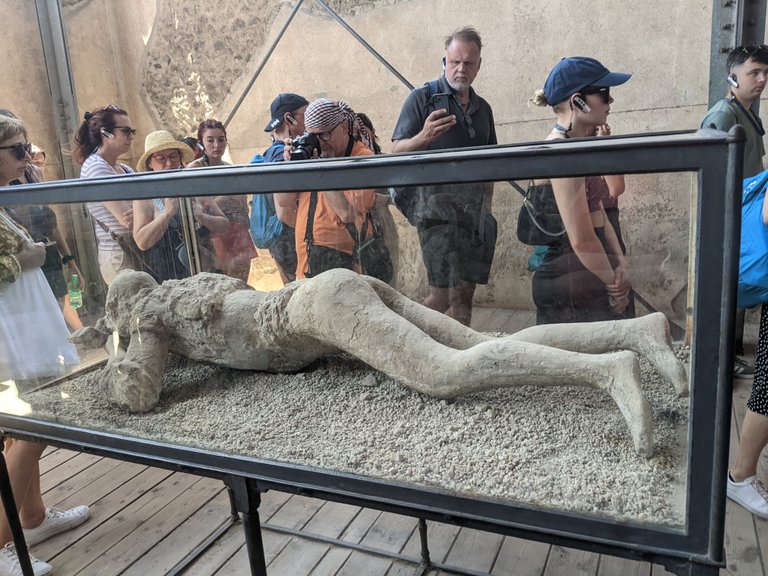
This is a continuation of our travels last summer in Europe. So far I have covered our preparations and how we got to Italy, Lucca our first destination, and a day trip to the Leaning Tower of Pisa. After we packed up everything and moved our home base to the Amalfi coast the next day we went on a day trip to Pompeii.
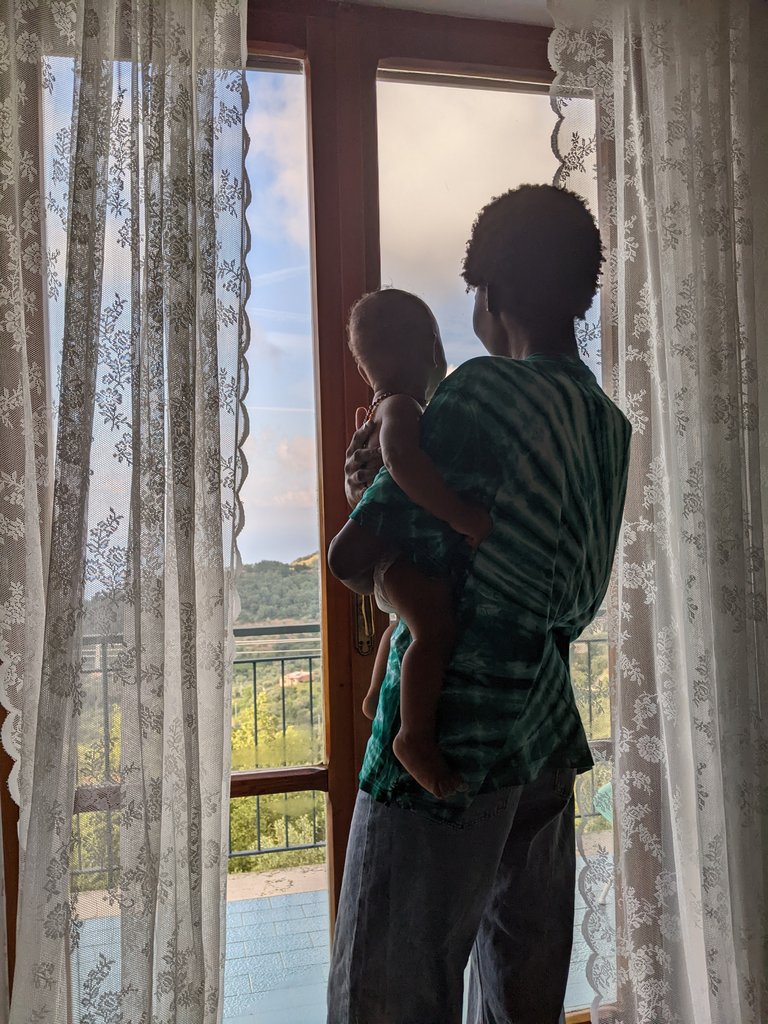
We woke up to a beautiful view and a nice sun-shining day at our Airbnb in Sant Agata high up on the hillside overlooking the Med.

Here is a panorama of the view.
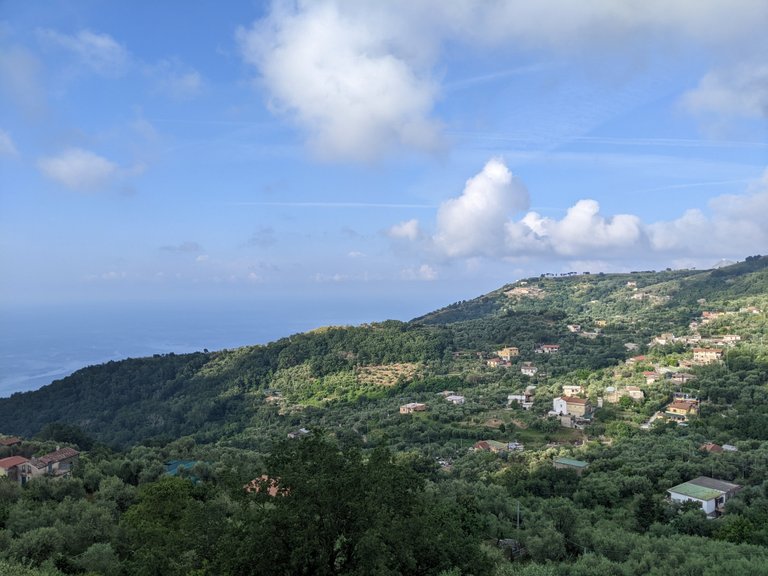
And another one shows a number of the old houses on the hillside. One of my future posts will be about walking down this valley to the seaside.

Bjorn got a little time to play with his train that his aunt got him while we were getting ready. He was sporting some new teeth and the air was starting to grow.
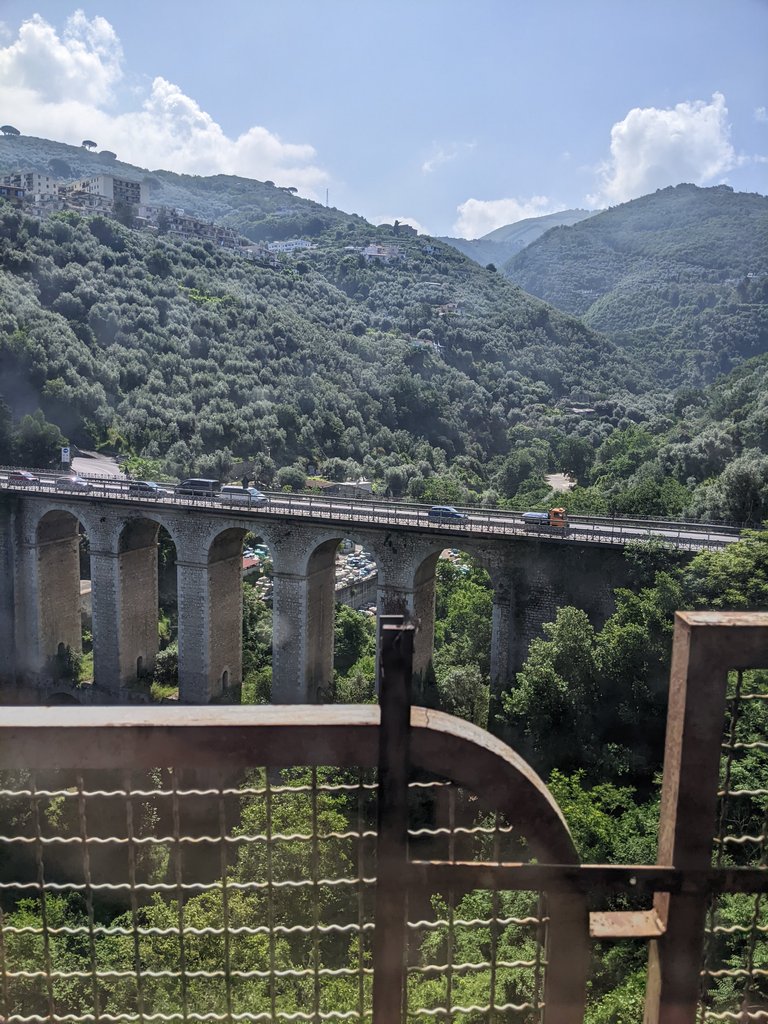
We took a bus down the mountain to Sorento and then took about a 30-minute train ride to Pompeii. Along the way, the train goes through a series of tunnels through the mountainsides and over some bridges, out the window, you can see this very old bridge that the highway uses.
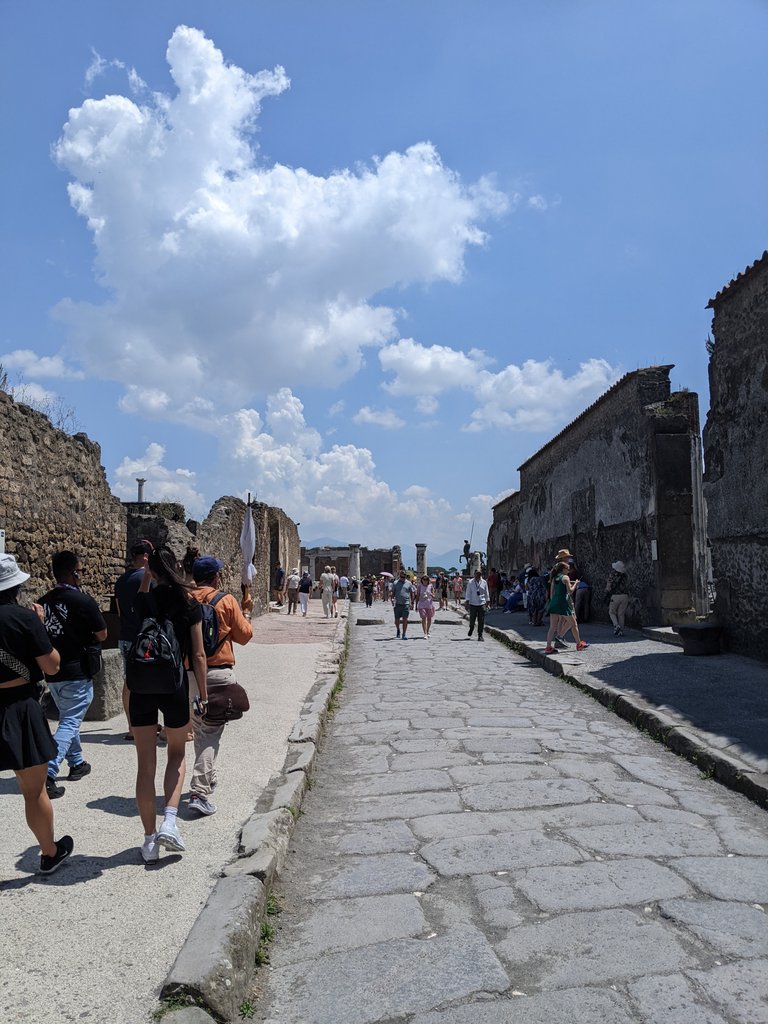
We ended up taking a small guided tour to get a good idea of what was going on. Here we had made it past the city gate and we were walking up the main street of Pompeii which would have been lined by shops and kiosks.
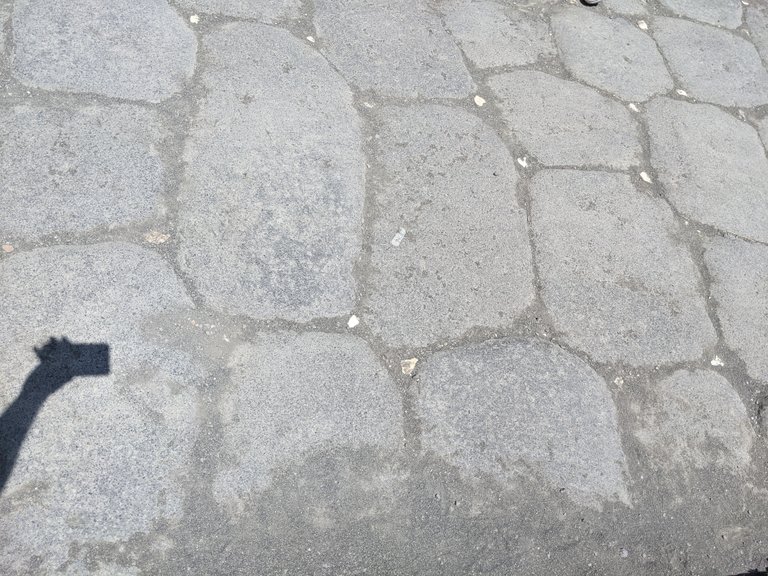
Pompeii's beginnings date back to 450 BC under the Greek Civilization but is best known for the Roman City which was built over the original settlement somewhere around 90 BC. Here you can see white stones among the paving stones of the main road. At night these reflect light like little reflectors. When you go to Napoli even today they still use these on the cobblestone sidewalks.
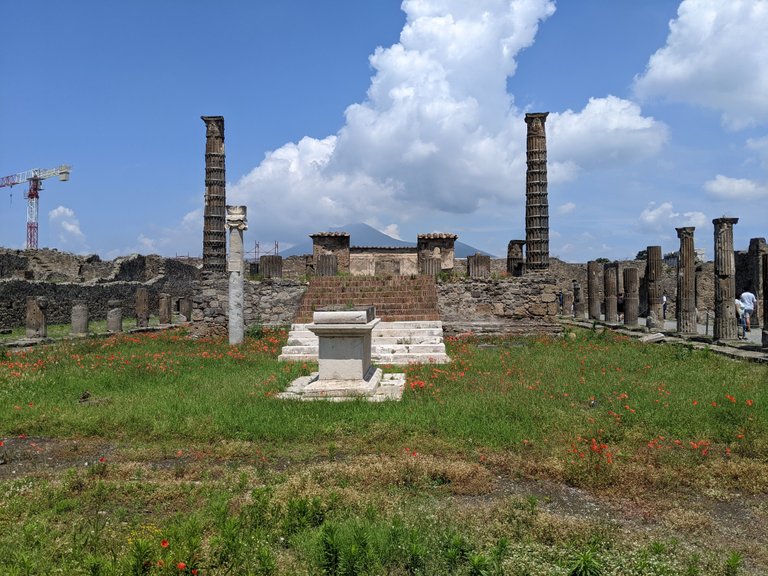
Pompeii sits in the shadow of Mount Vesuvius you can see here in the backdrop of the temple of Apollo with some dramatic clouds. This mountain is the center of what makes Pompeii so special to this day starting in 62 BC when a major earthquake struck damaging a large part of the city.
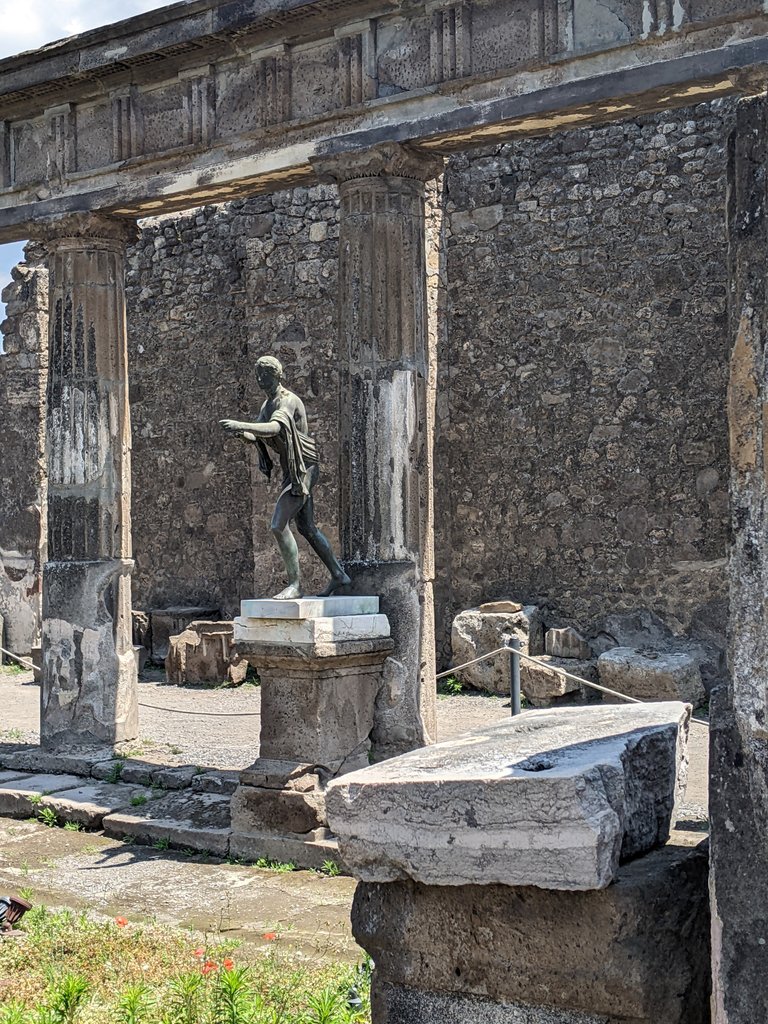
In the 17 years following this earthquake, much of the city was rebuilt and improved to an even greater grandeur. Here is a statue of Apollo.
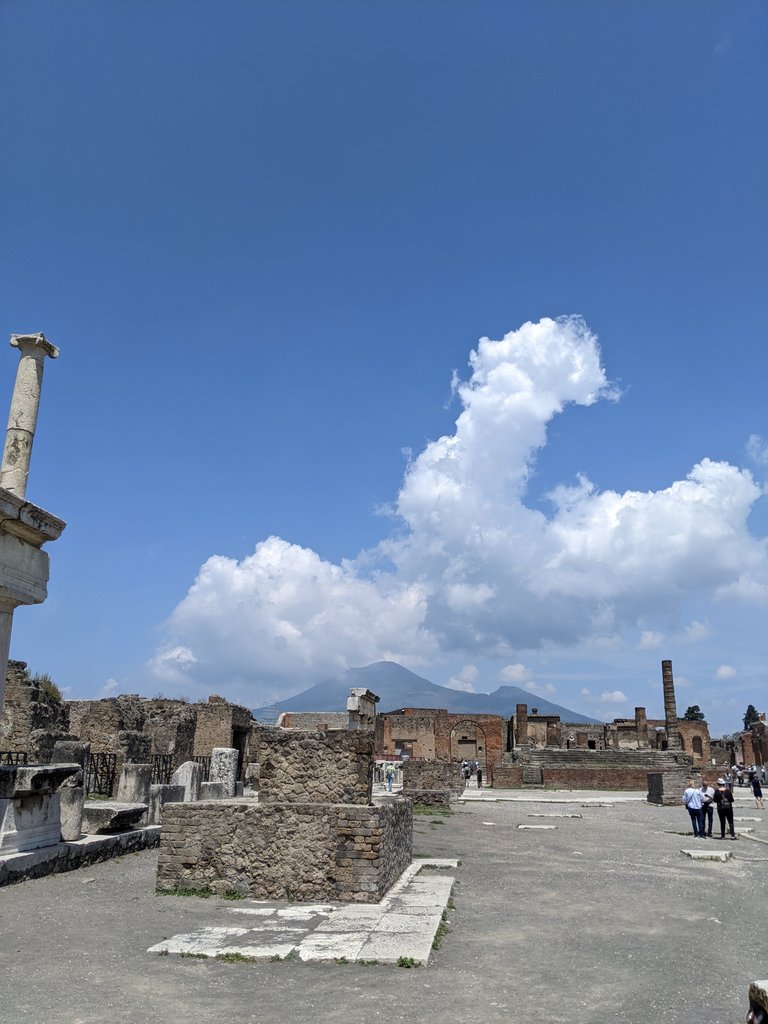
In 79 AD Mount Vesuvius erupted over 2 days. The first day was a shower of pumus stones, this allowed many of the inhabitants to escape. The second day pyroclastic flows leveled the area burying everything in pumus and ash about 6 meters deep. This is what makes the site so interesting to this day because everything was very well preserved under all of this volcanic material. The estimated population is between 12,000 and 20,000 people during that time. Only about 1,500 bodies have been found.
Here is the forum that was totally paved with white stones. These stones were harvested before much of the other excavations as they were on the top of the hill and uncovered from more erosion. The stones were used in the construction of the palace in Napoli.
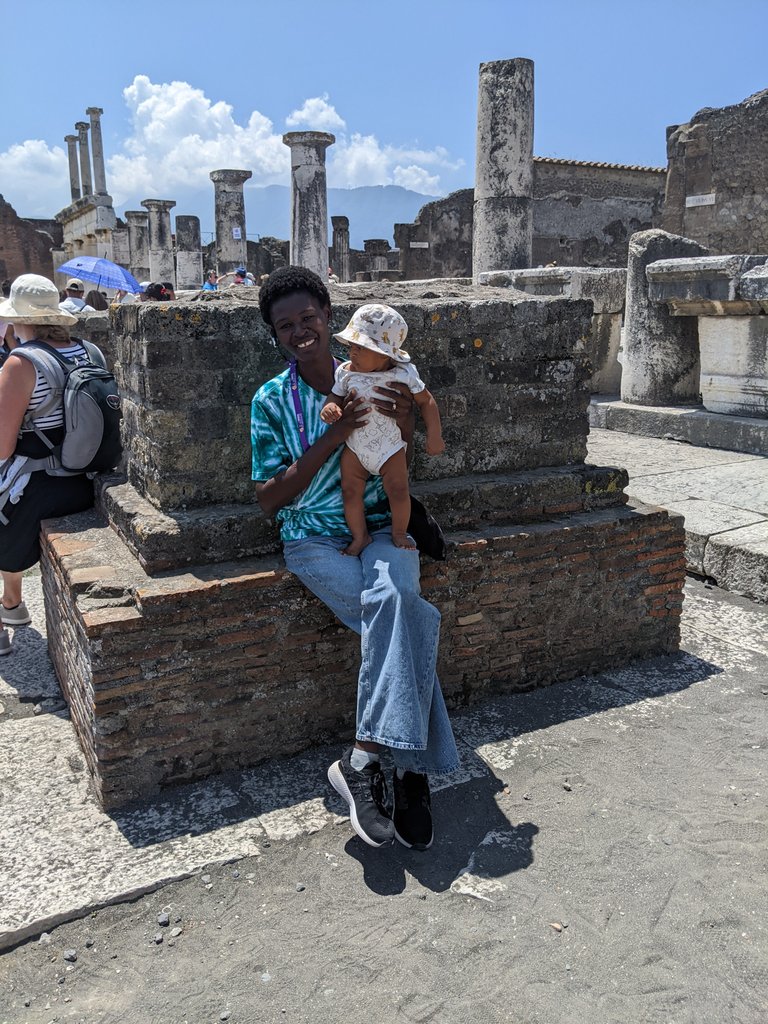
Dzigbordi found a little shade in the forum to rest with the little guy for a bit. That day we had to carry him everywhere because we read there were no backpacks allowed or strollers. He really took a toll on our backs that day.
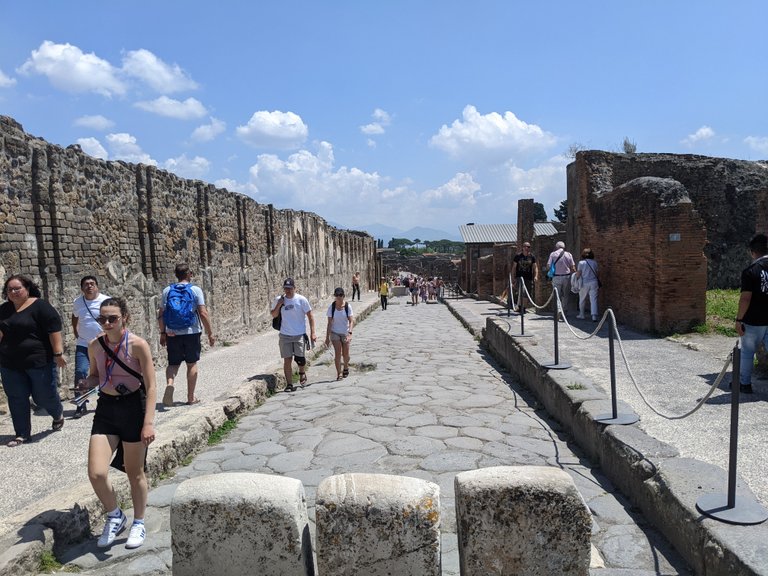
These blocks in the street blocked horses and carriages from going on them so they would have been pedestrian-only.
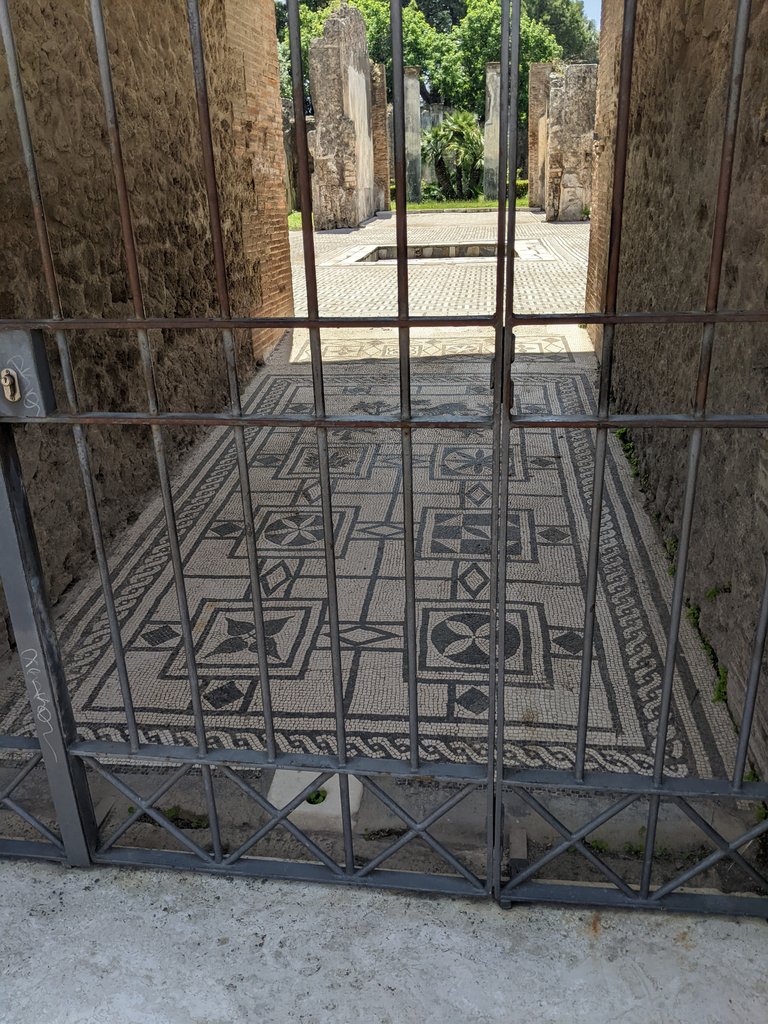
Many of the tile mosaics are very well preserved like this one in the entrance to the house. Each noble house would have had its family symbols and designs in the entry like this.
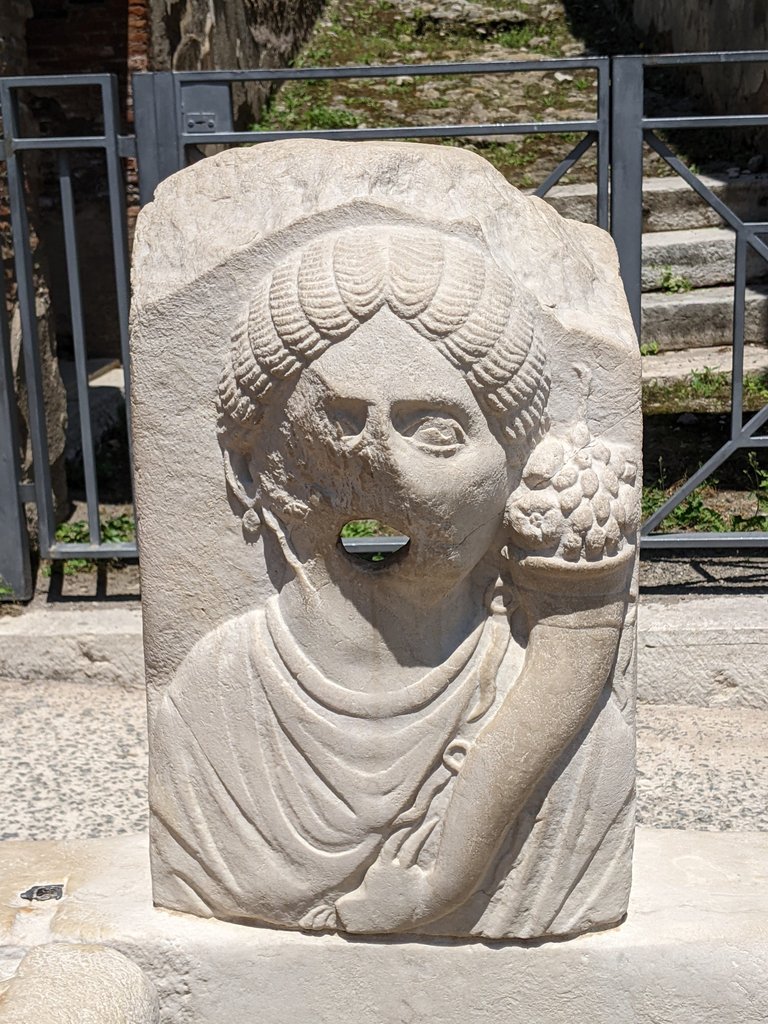
The city had pipes running through it with water there were a number of fountains and wells around the city like this one where water would have come from the mouth of the statue.
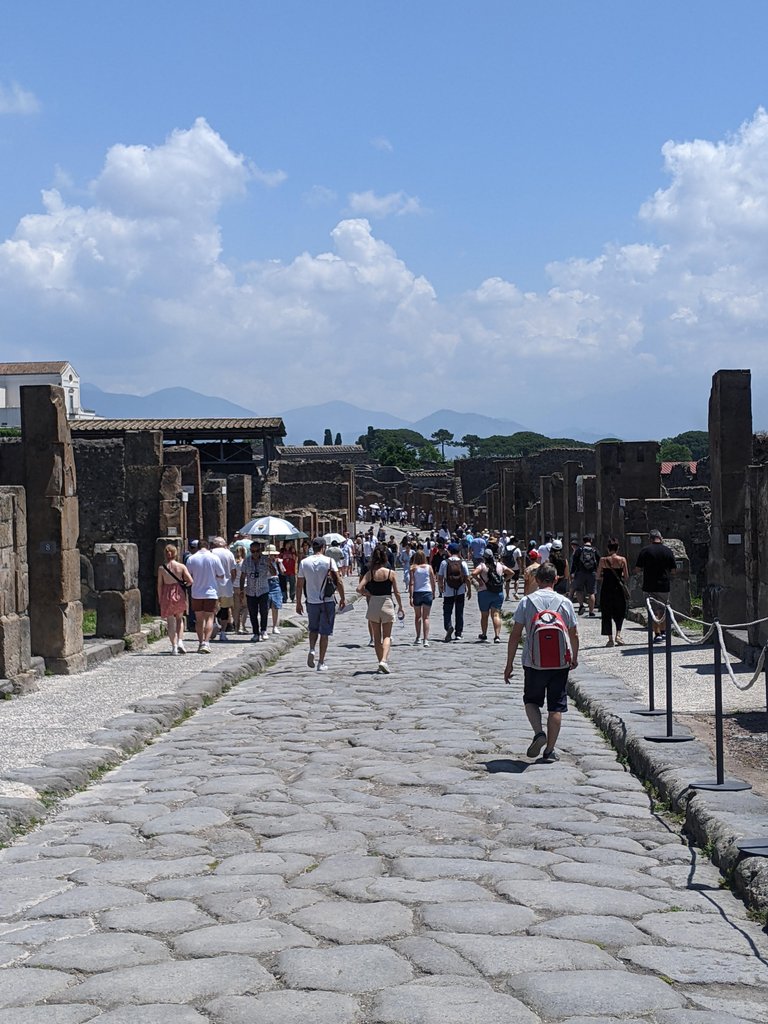
The site is huge and involves a lot of walking here is one picture to give you an idea of just one of the streets.
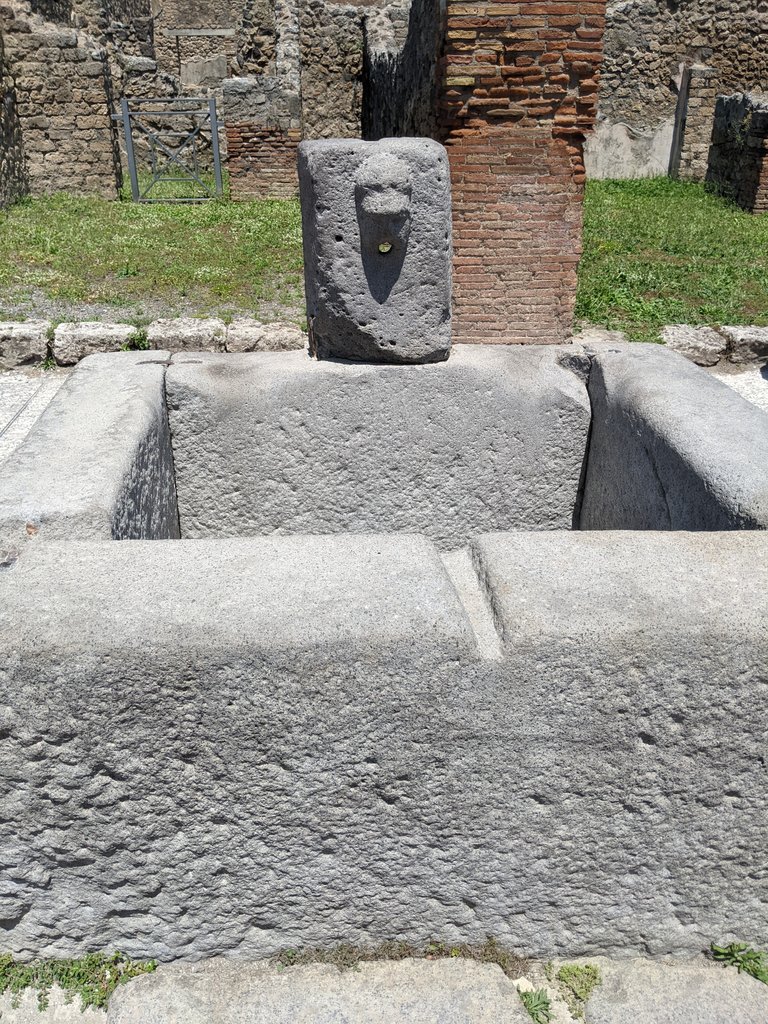
Here is another public fountain.
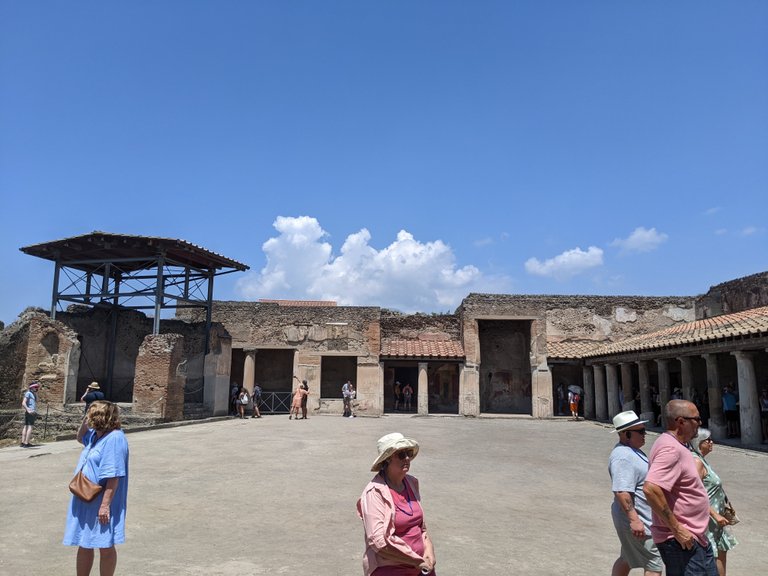
The courtyard to the public baths.
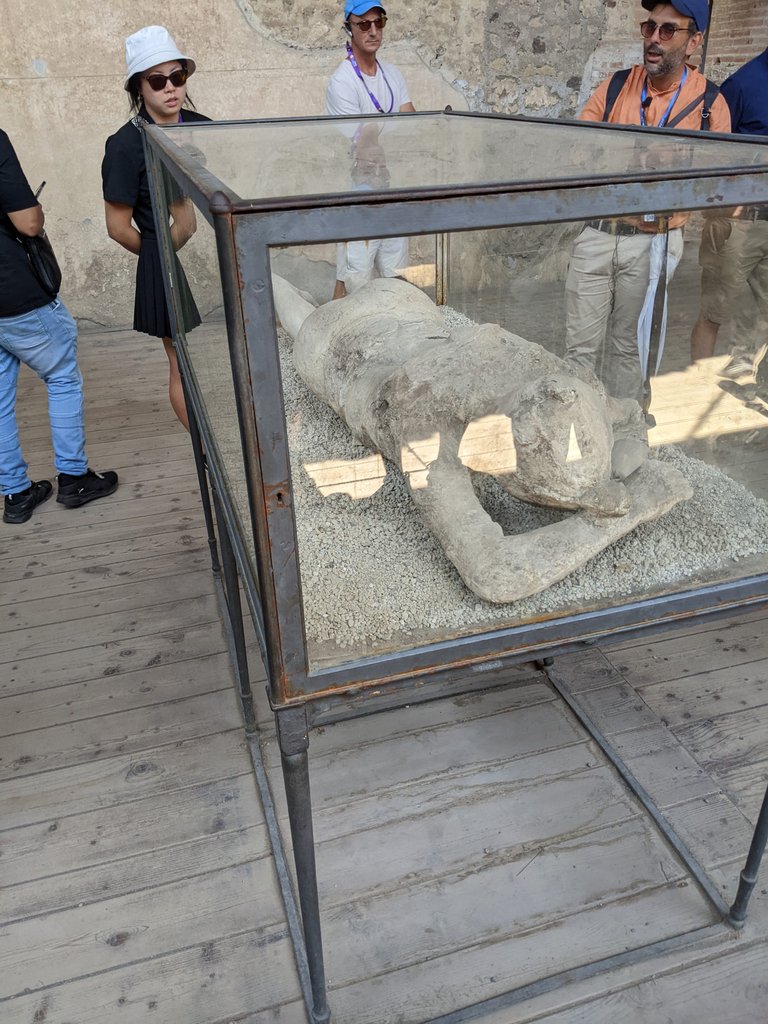

Pompeii is famous for the pyroclasts these were people that were stuck in the flow and buried during the eruption. It is believed that they were probably killed instantly by the heat rather than suffocating and being buried alive. I was led to believe on the tour that the bodies calcified creating these structures but I read elsewhere that they were voids left in the material that could be used as forms to create them out of plaster or other materials. I do not know which is which but it was amazing, and humbling seeing the forms of these people who lived here 2000 years ago with a lot of detail.
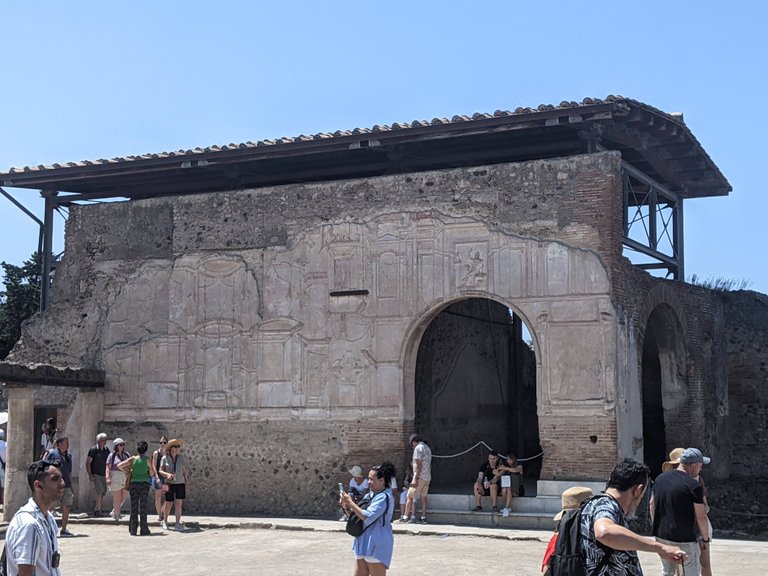
Many of the buildings were partially destroyed from the initial shock of the volcanic flow and are partially restored to protect them from the elements and make them visitable.
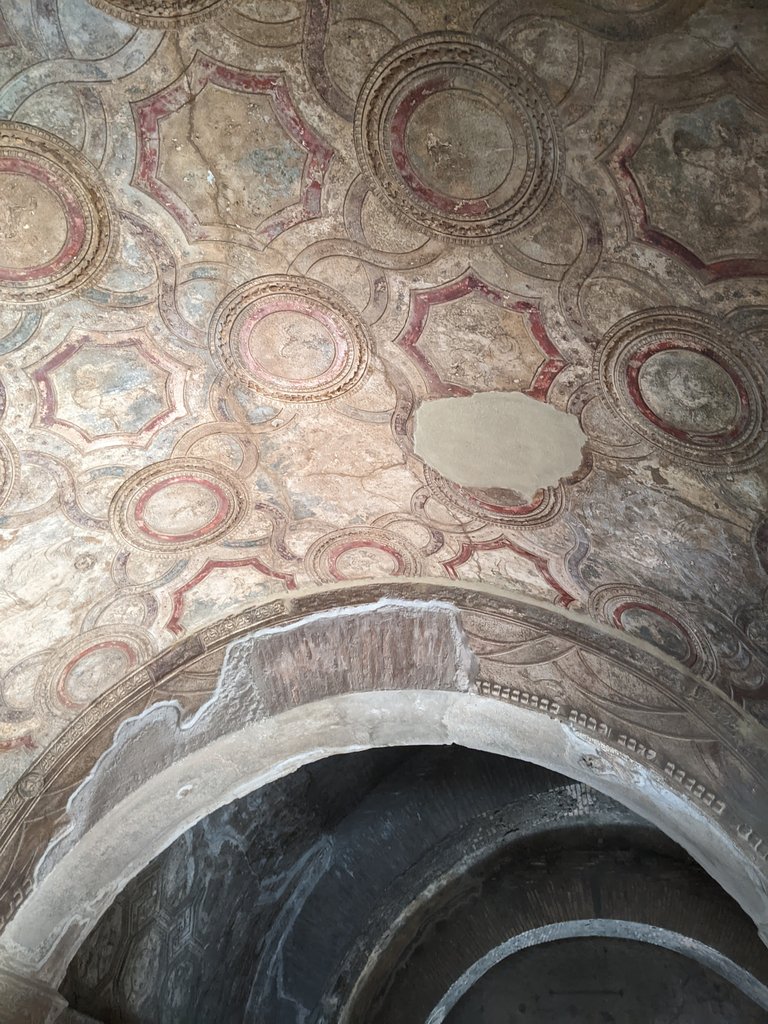
This is the ceiling work inside the public baths.
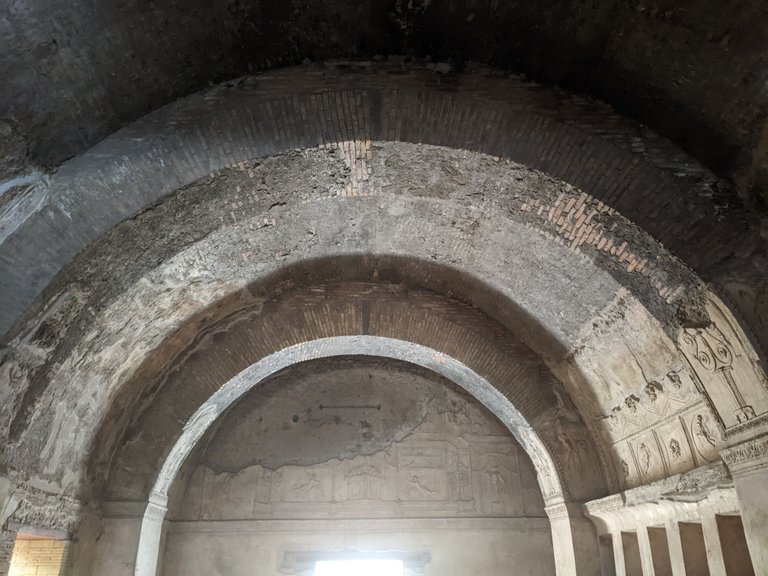
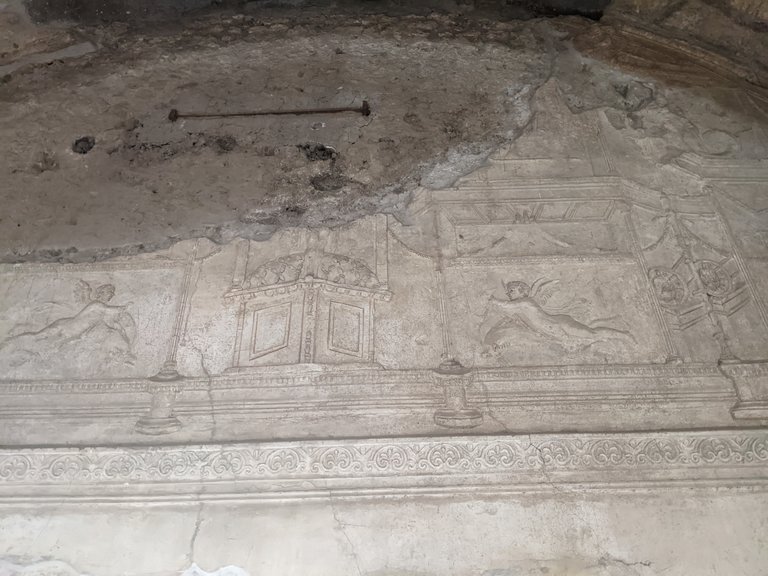
These were very well preserved because they did not completely break down.
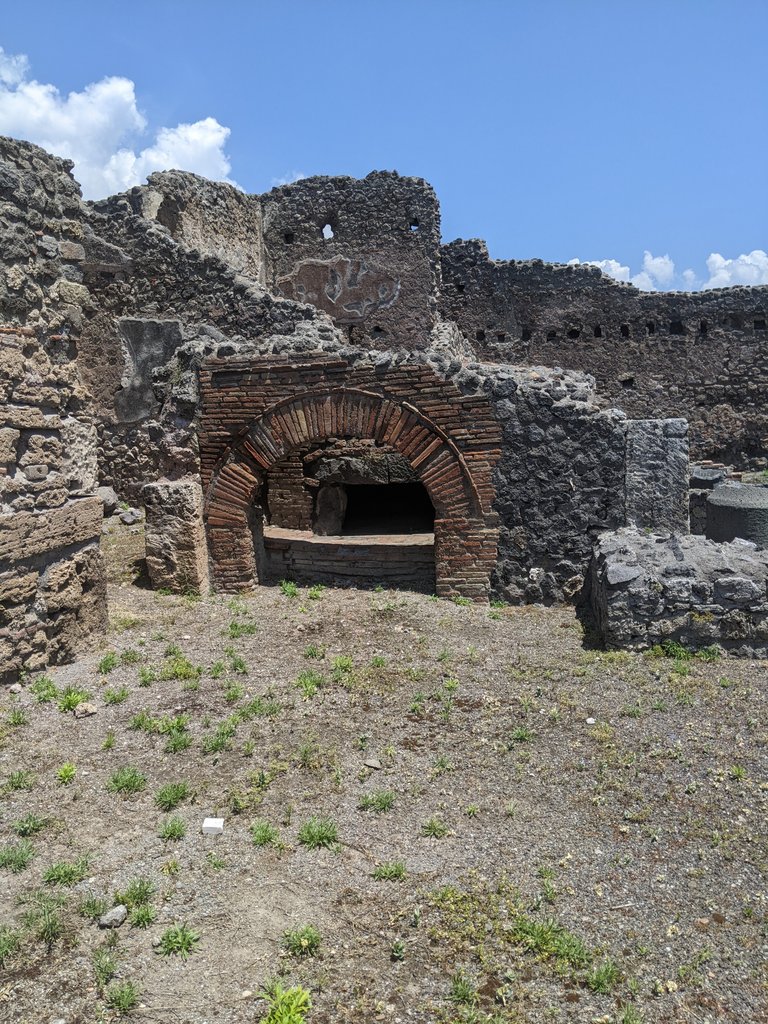
It was believed that the diet of the people who lived in Pompeii included a lot of bread. Pizza is believed to be a more recent Italian invention because tomatoes would have come from the new world, but a recent discovery on a newly excavated wall in Pompeii shows something looking a lot like pizza. This is a picture of a bread oven. The bread would have had a lot of stone grit in it as all the wheat was stone ground and this was evident in the remains of the people by their highly worn down teeth.
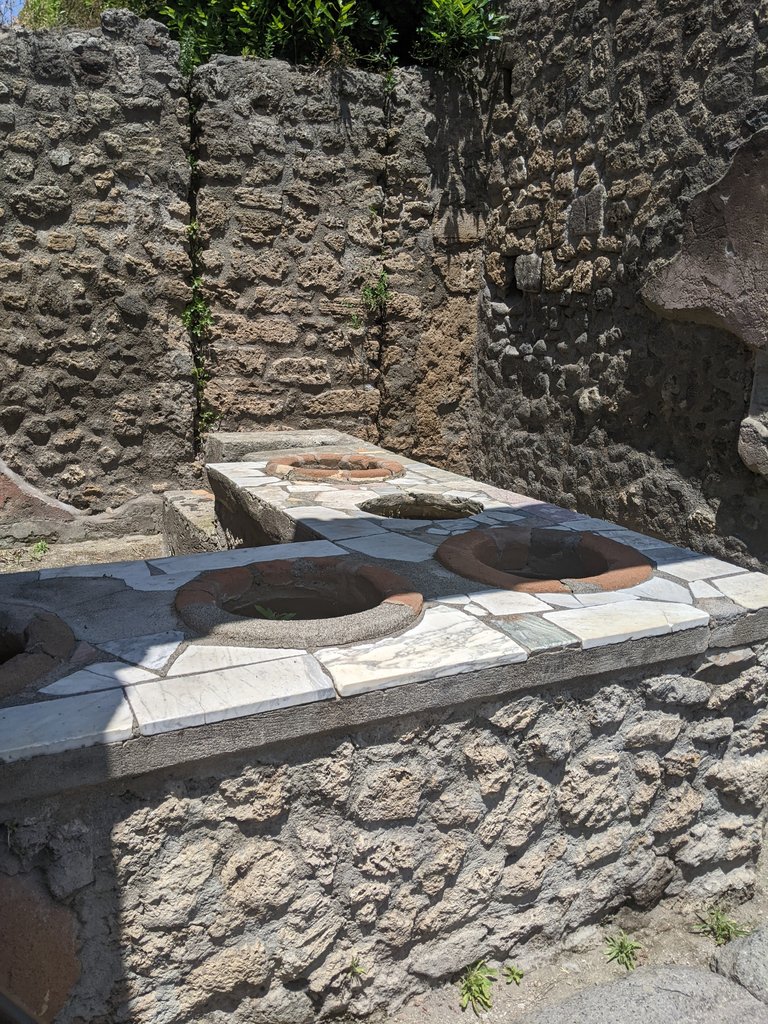
This would have been the equivalent of fast food, it reminds me of a chop bar in Africa where there would be pots of soup on the fire here and people could choose which ones they wanted. Or an old version of subway or chapotle.
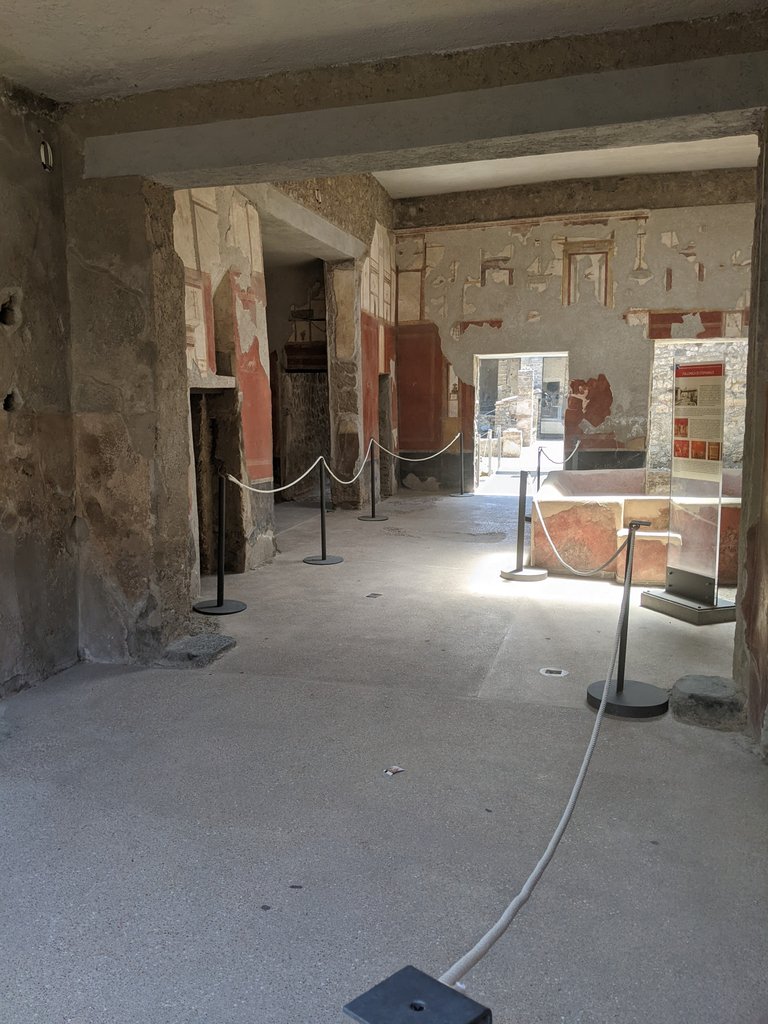
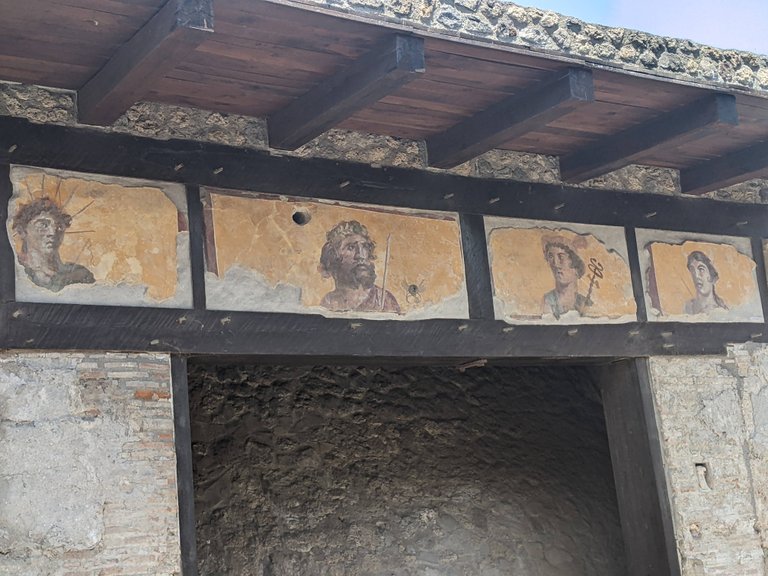
Here is the interior of one of the many noble houses along one of the main streets.
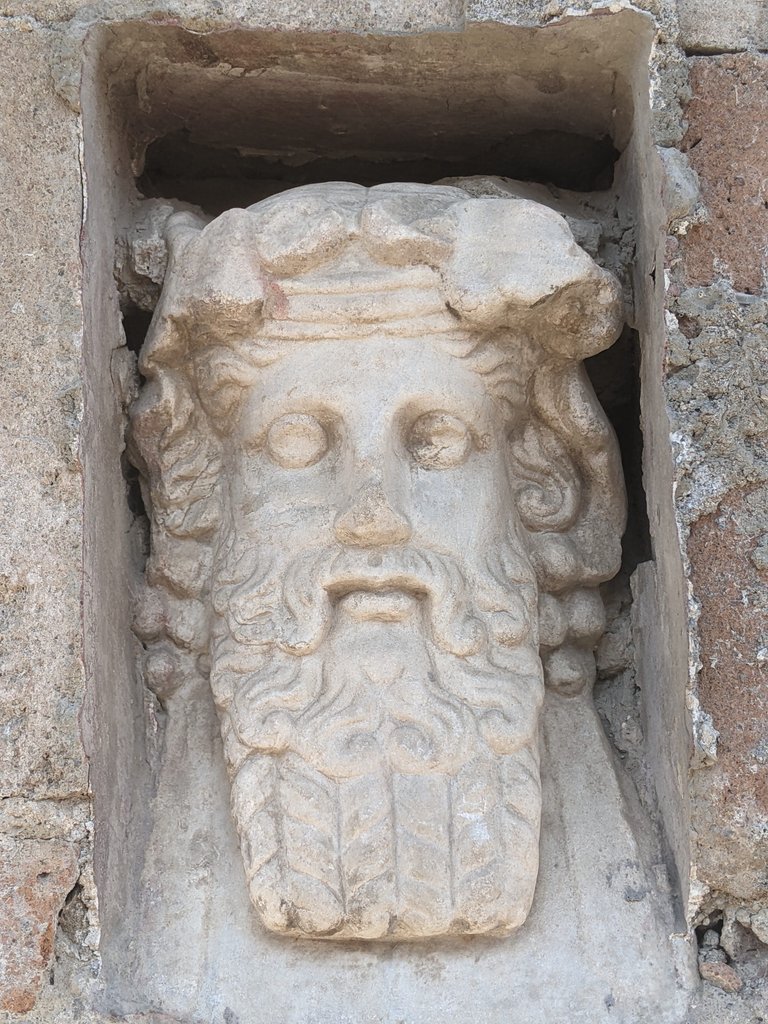
A carving of Zues.
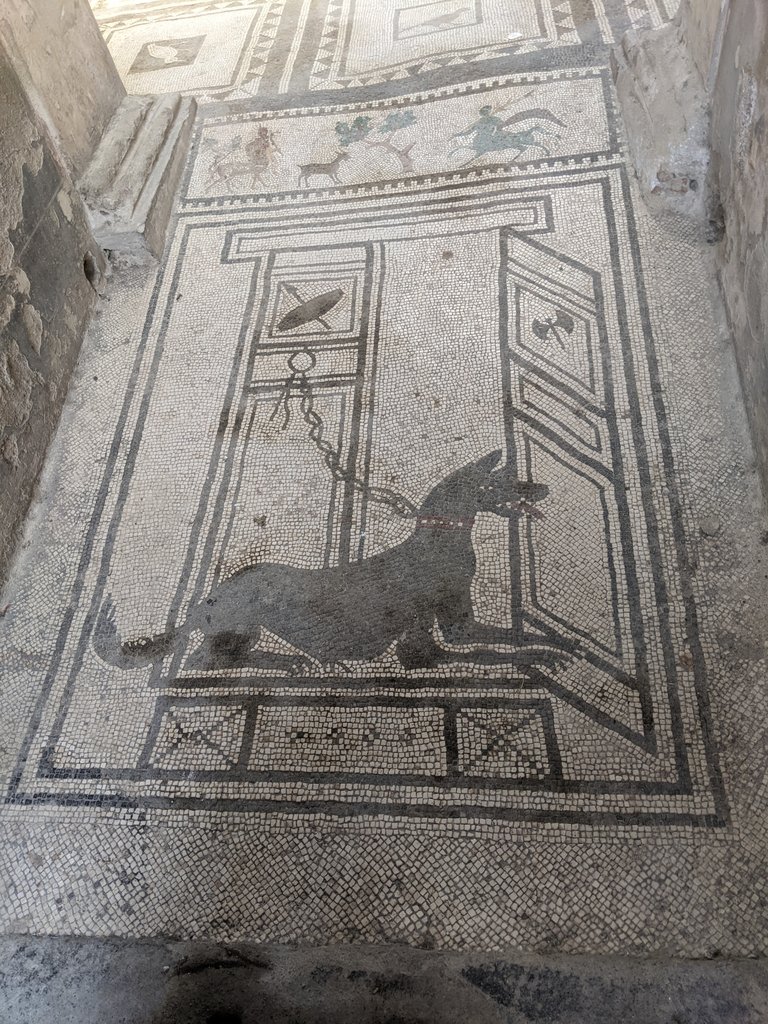
A mosaic at the entry of a house with a guard dog depicted.
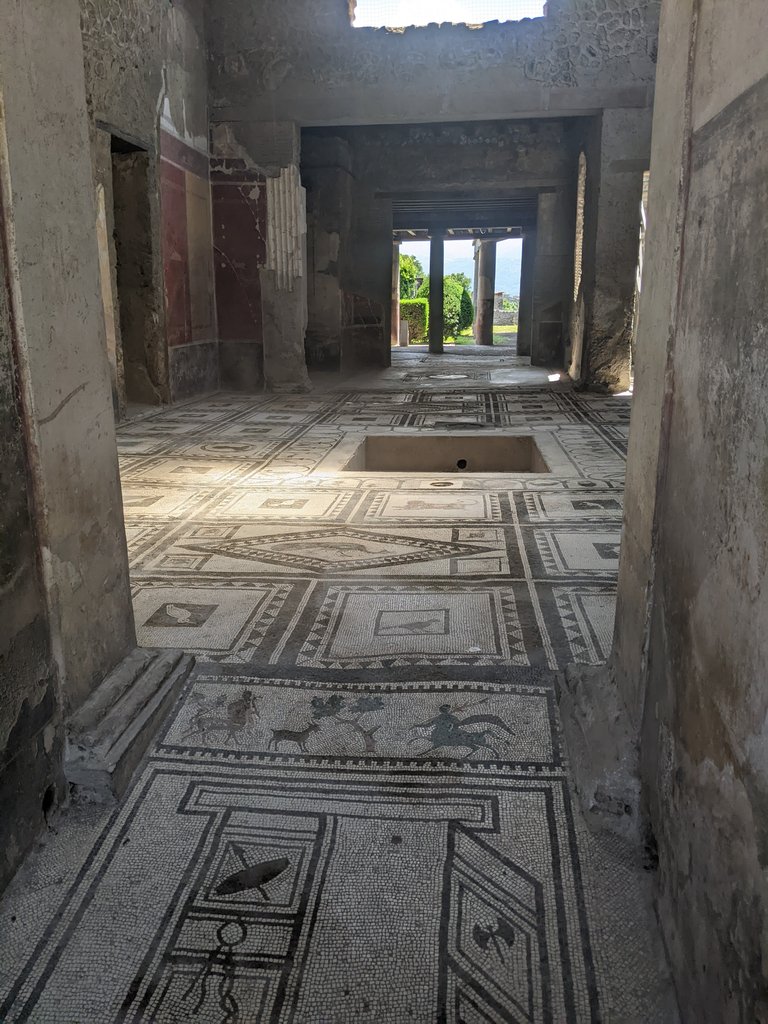
The rest of the floor throughout the house.
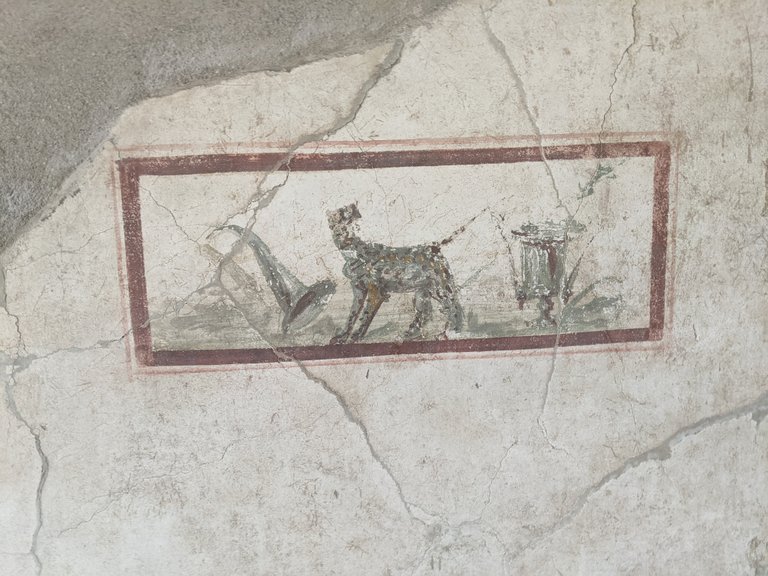
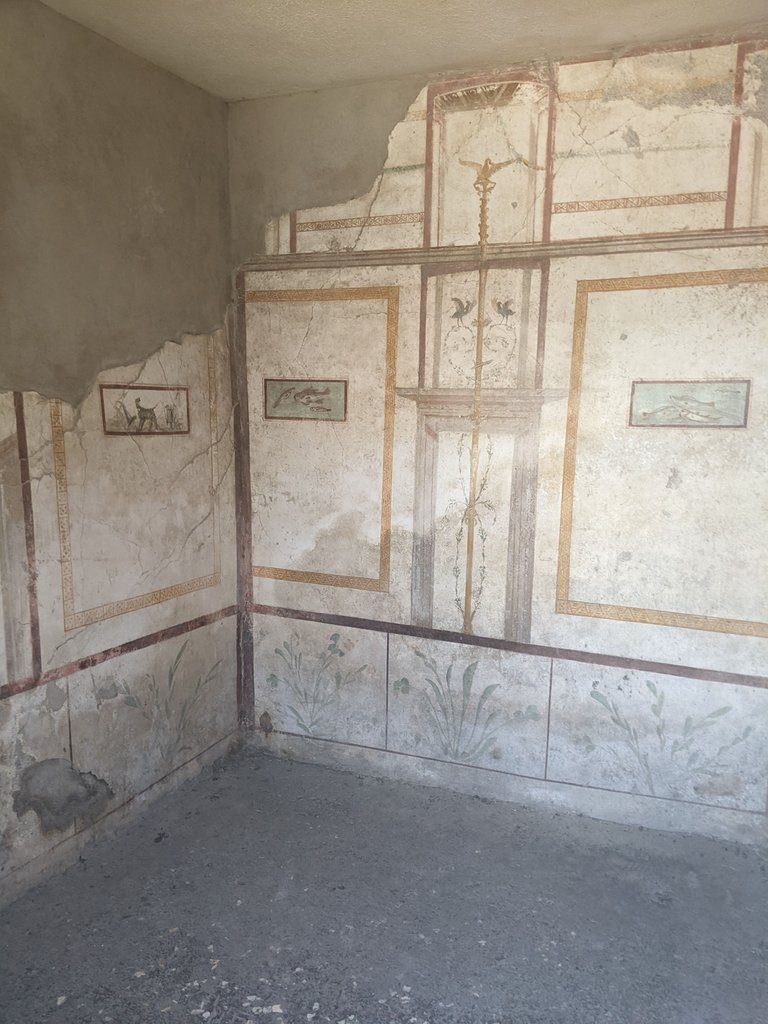
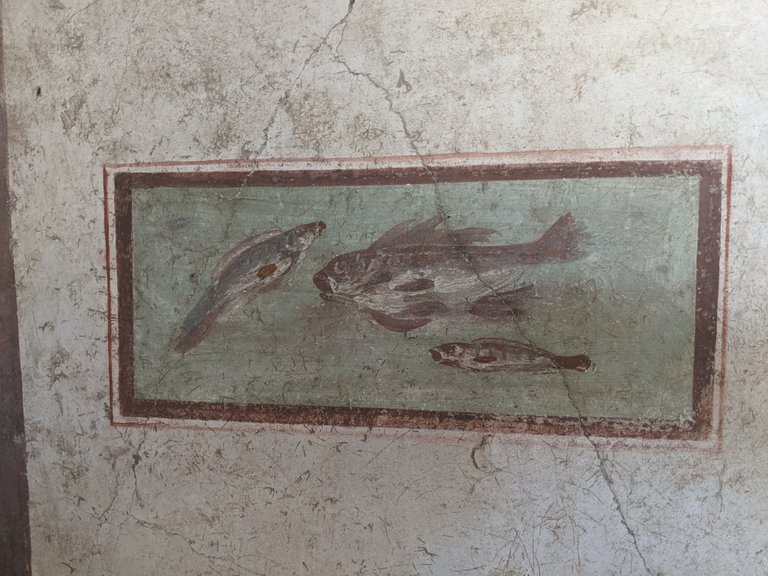
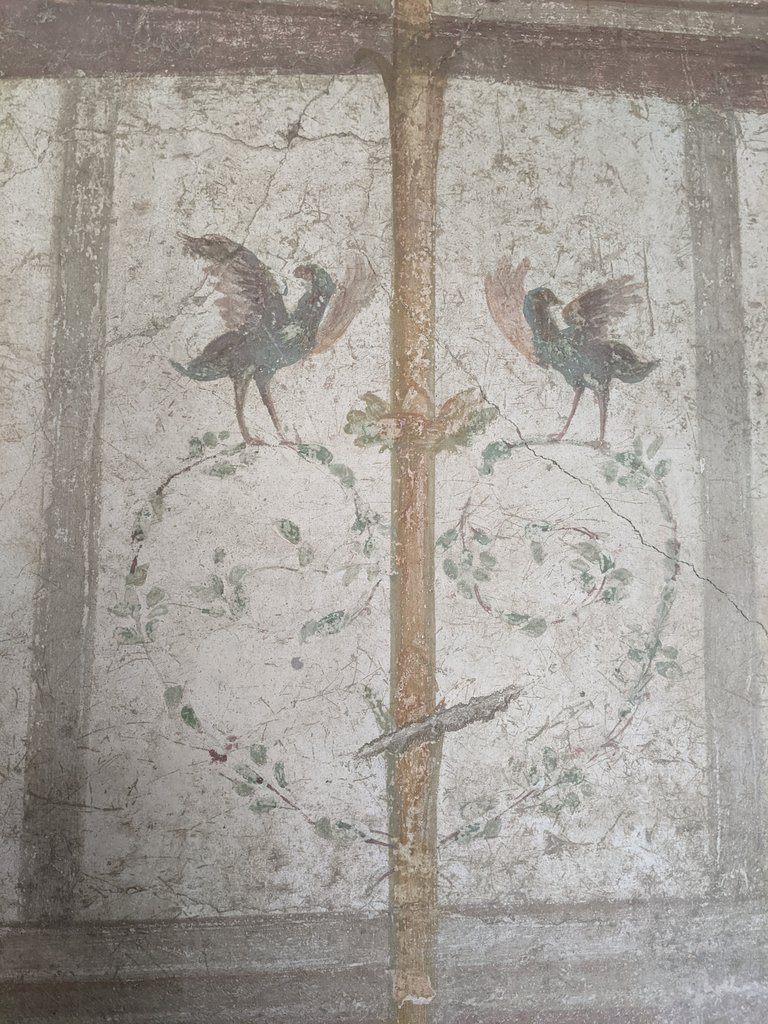
These are all paintings on bedroom walls.
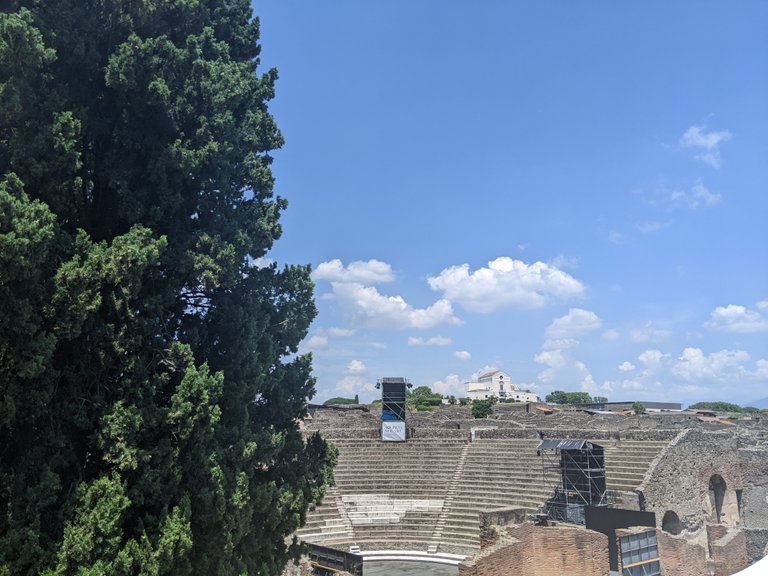
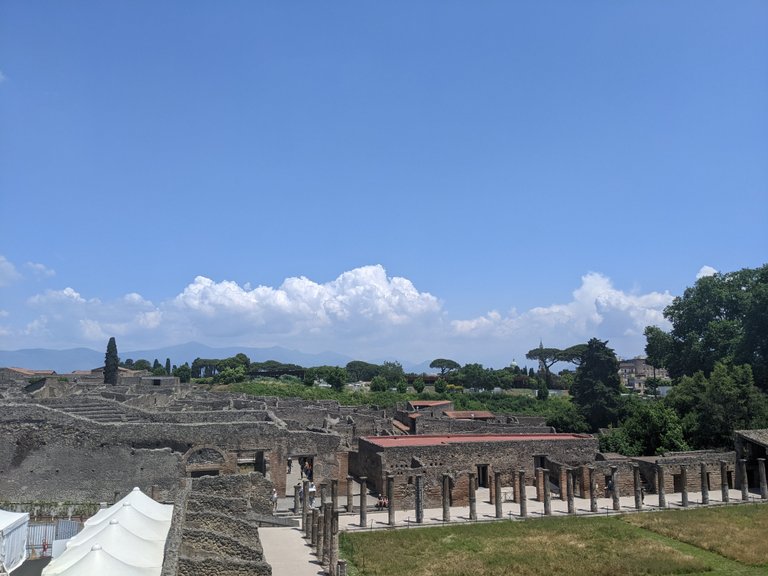
A view over the theater which was not open to the public as it was getting ready for something. There are often plays and concerts in the summer in the theater.
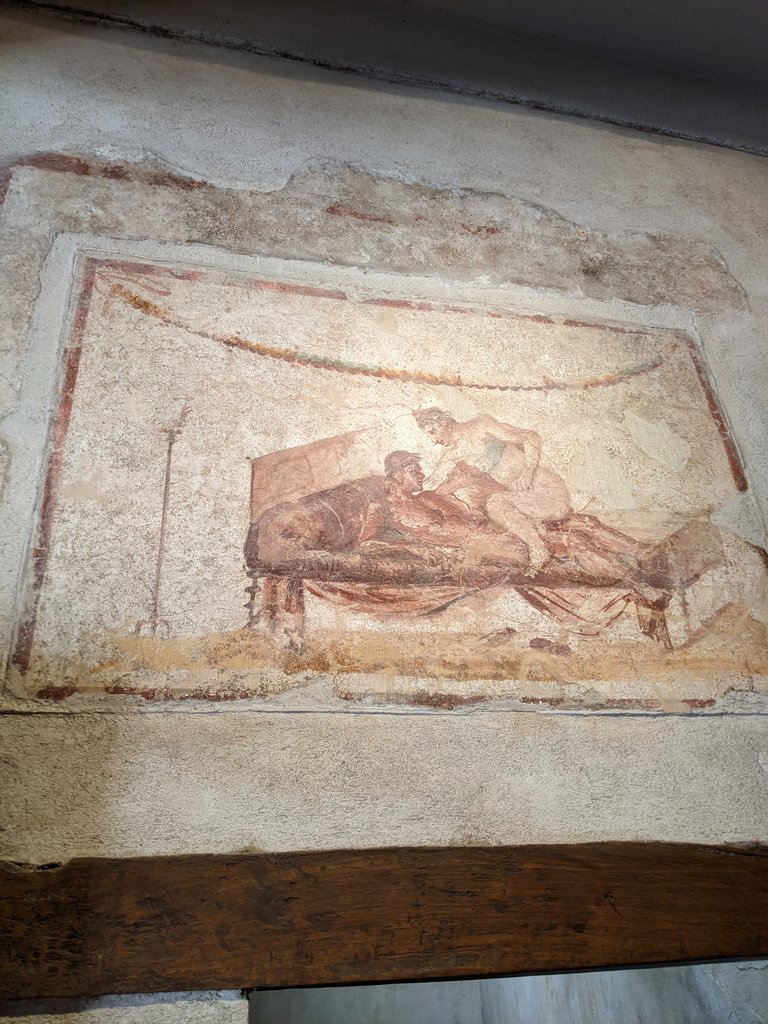
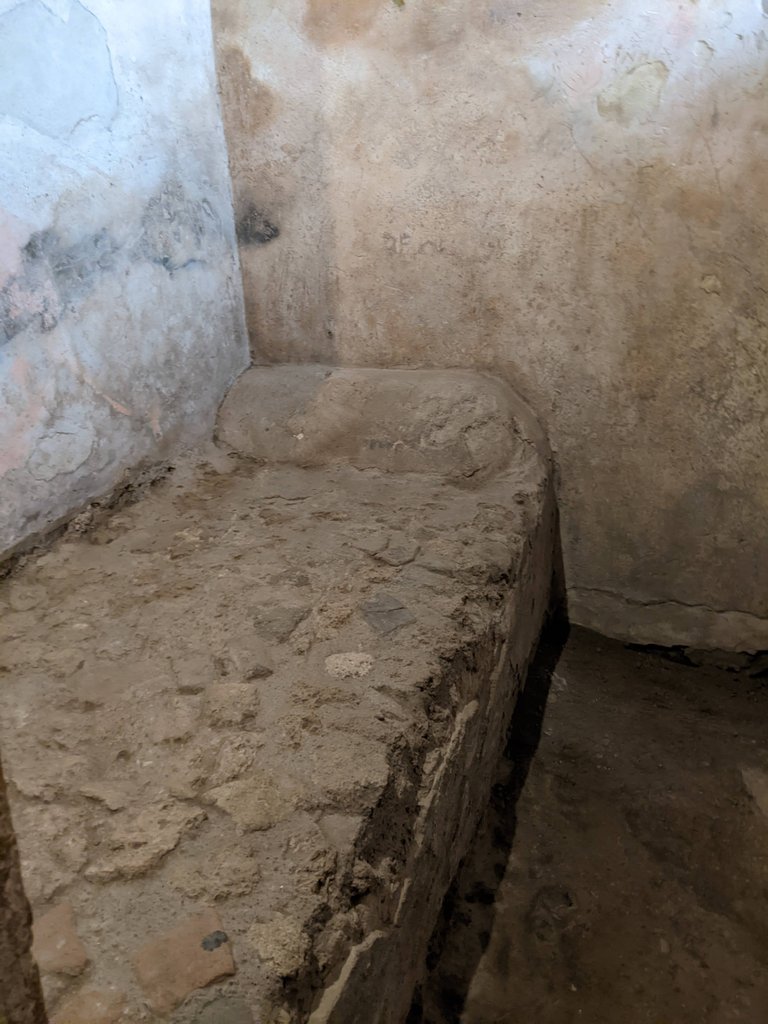
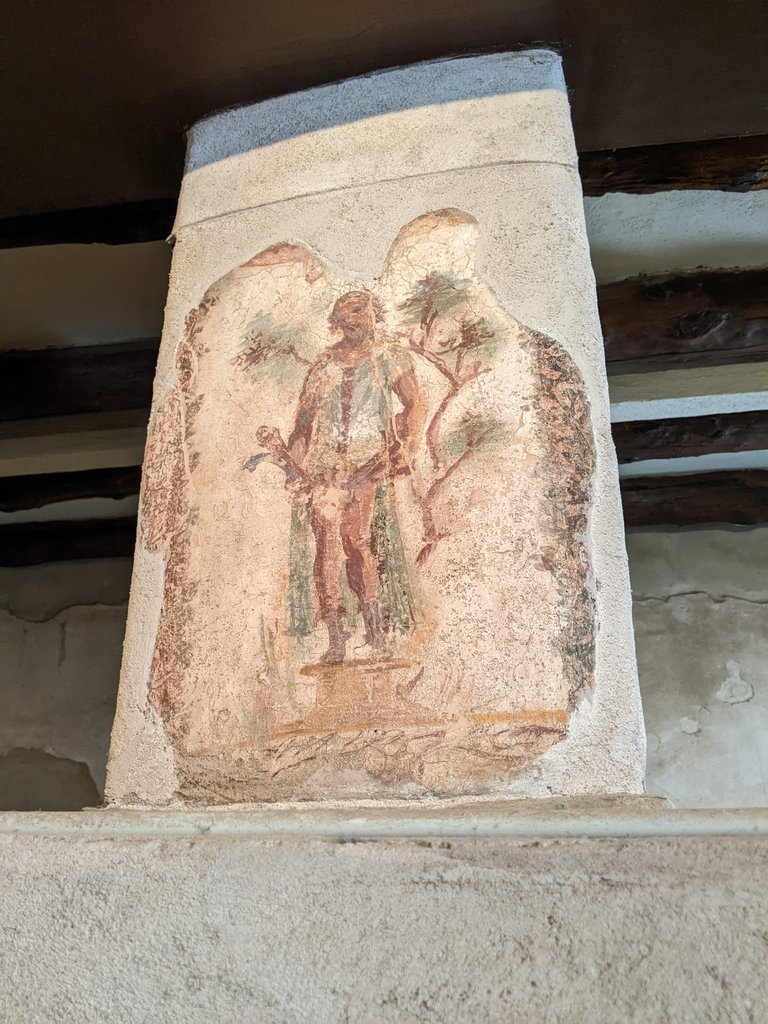
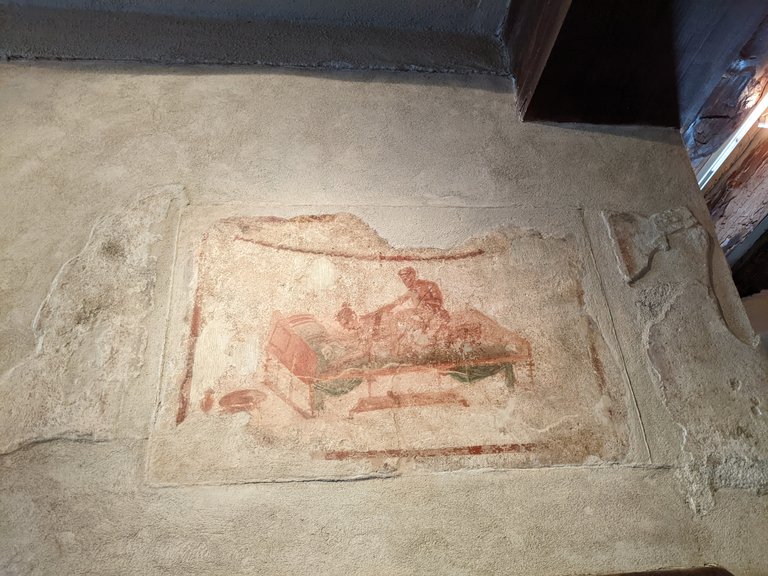
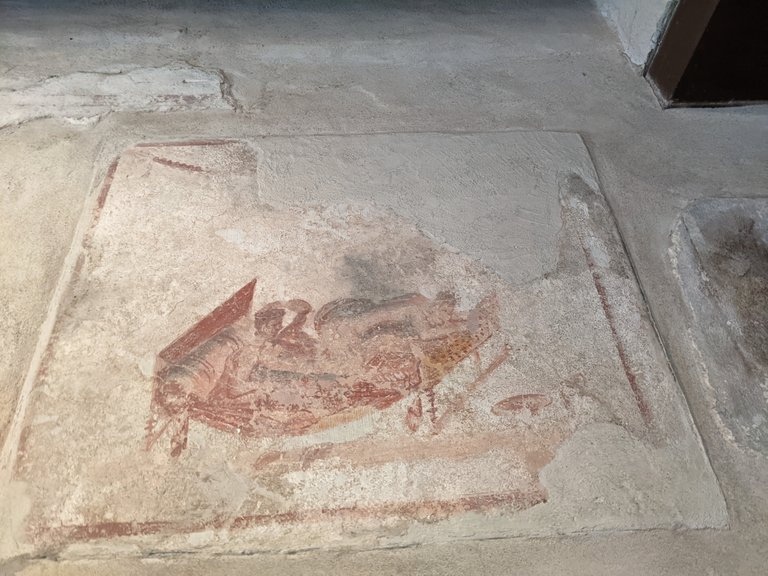
One of the most popular attractions in the city is the brothel. It clearly depicts how wild society must have been during that time. Each room had a painting over it with different sexual positions kind of like a menu and then a very comfortable-looking stone bed.
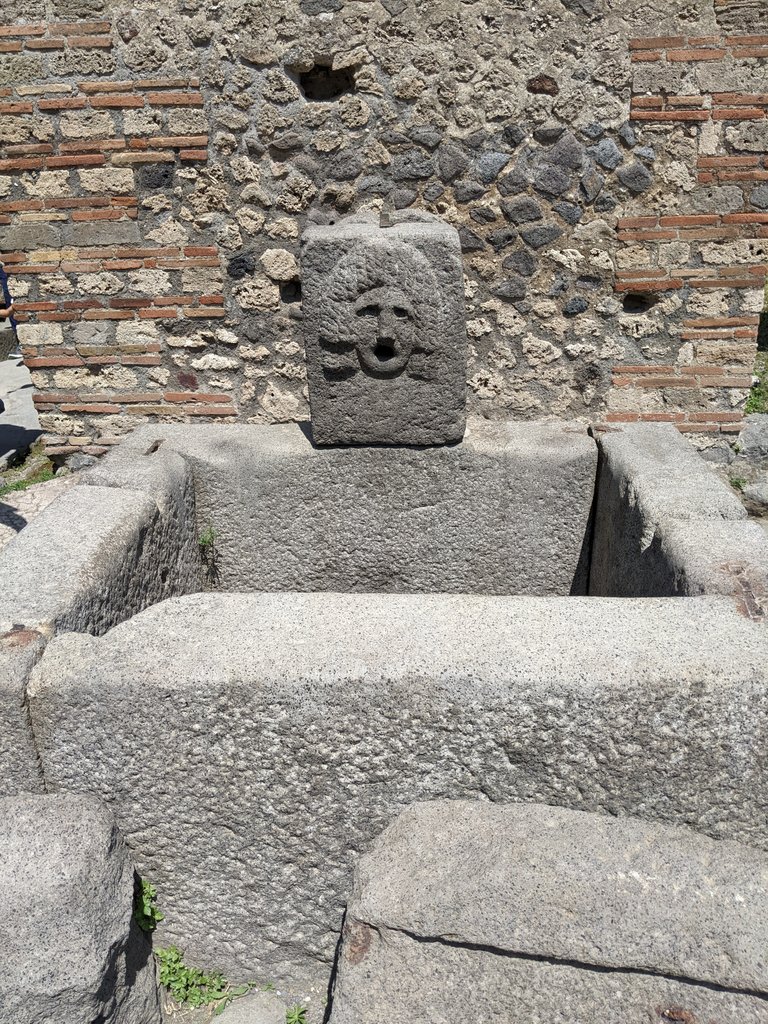
Here is another fountain outside the brothel maybe to wash all of that off of you when you are done.
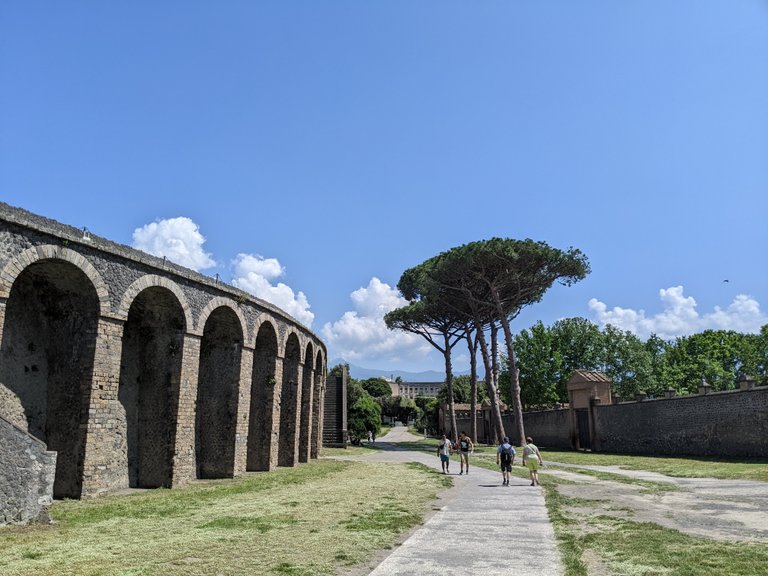
On the very far side of town was the Colosseum where barbaric gladiator matches were done.
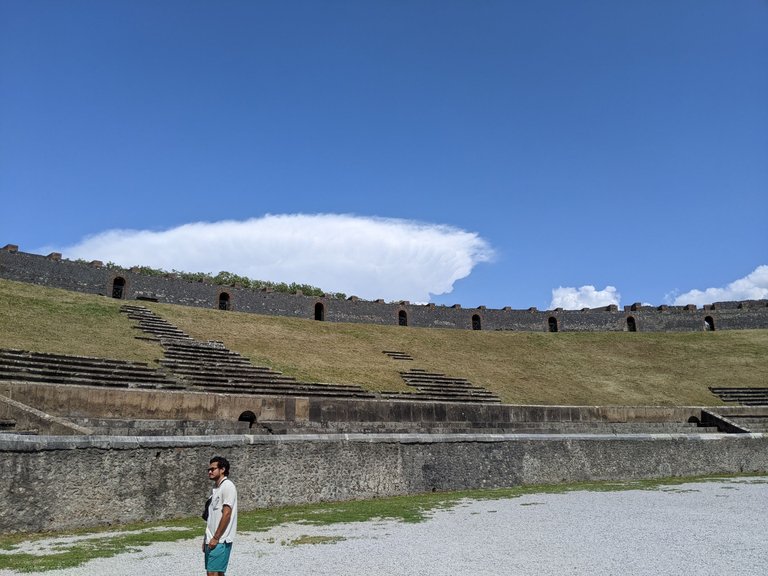
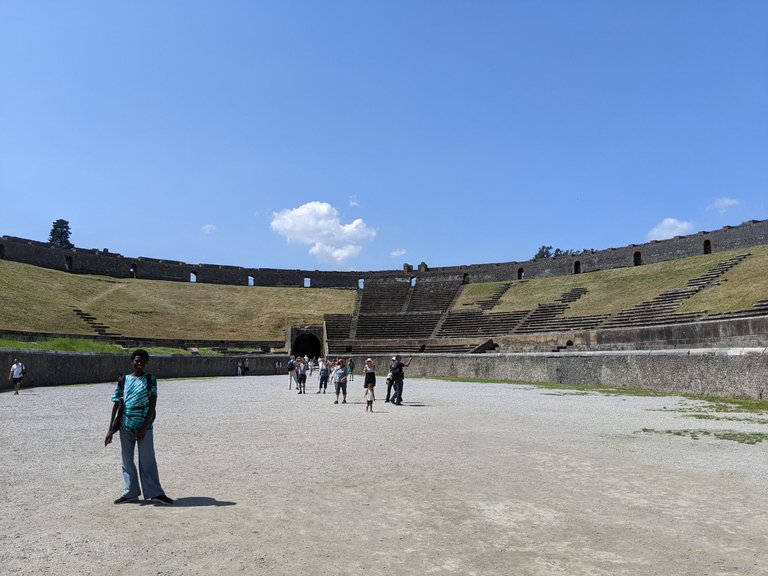
Here is the center of the Colosseum.
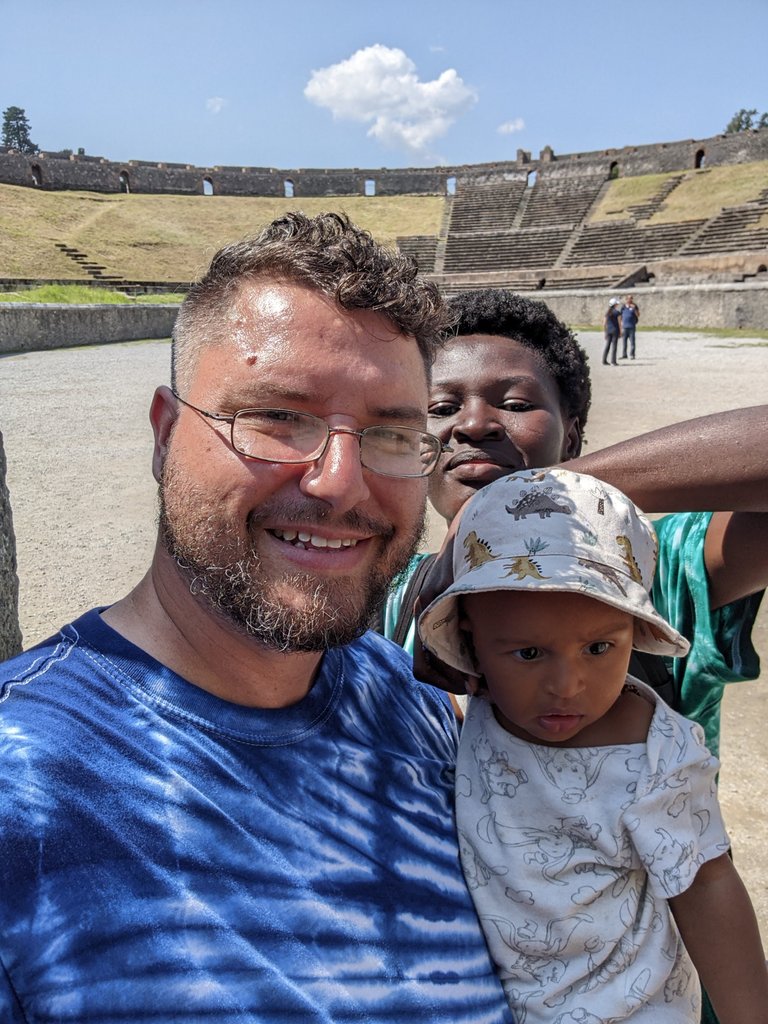
A little family selfie in the Colosseum.
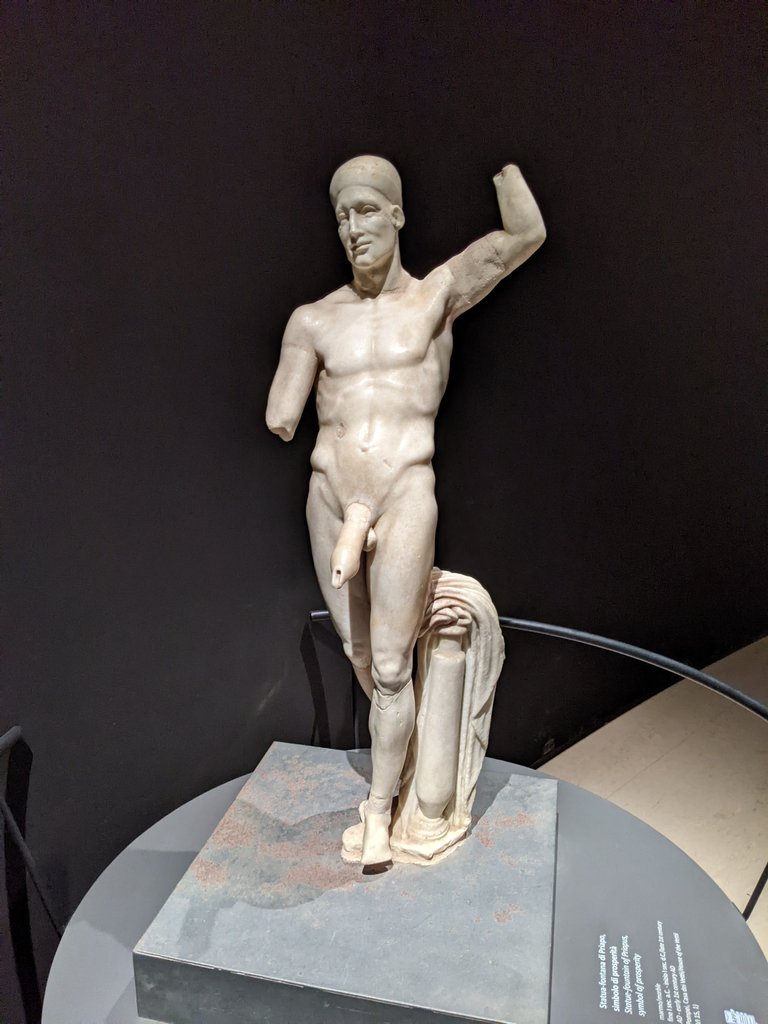
Large phalluses some connected to statues some are their own, and some with wings are symbols throughout the city for good luck.
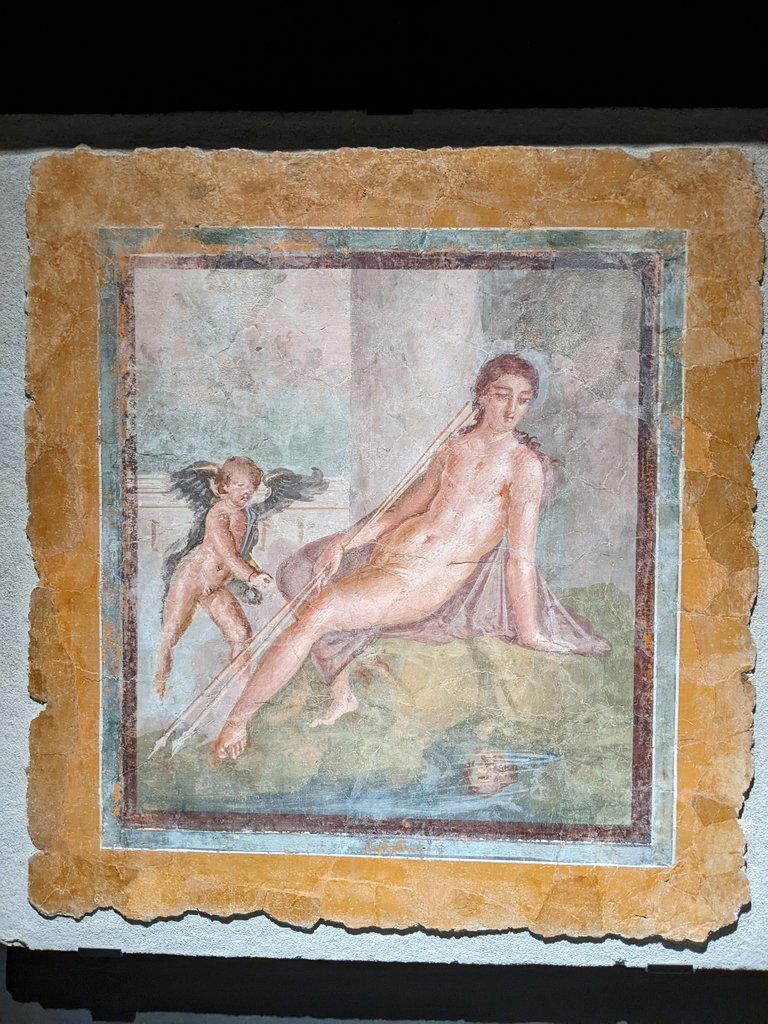
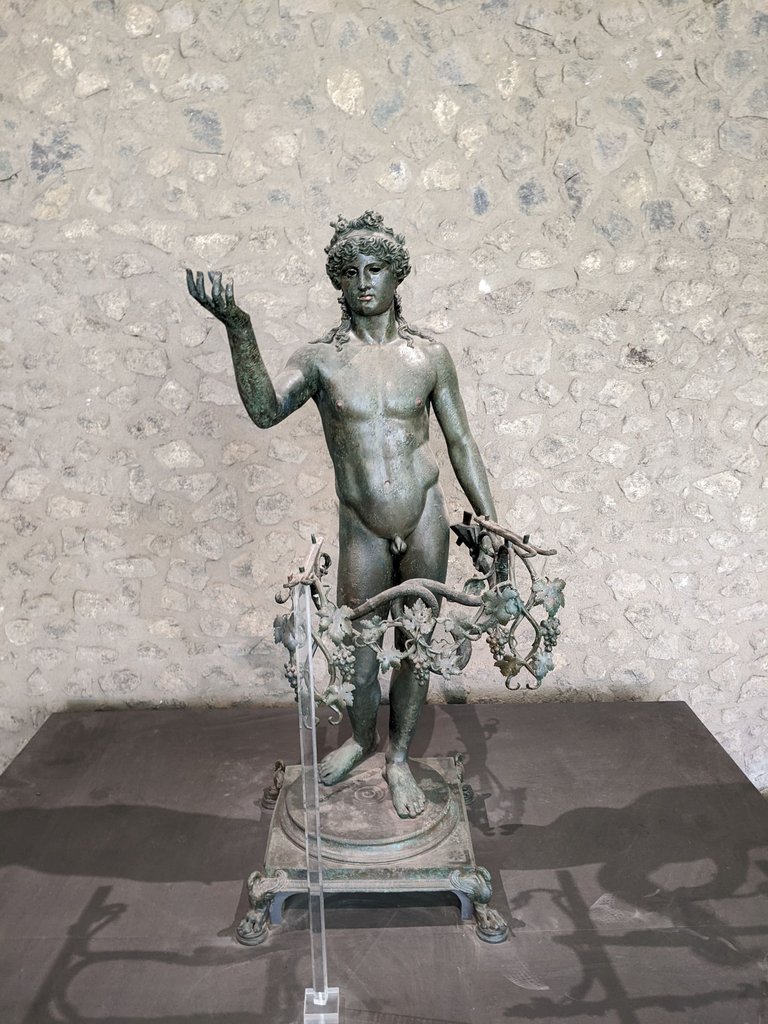
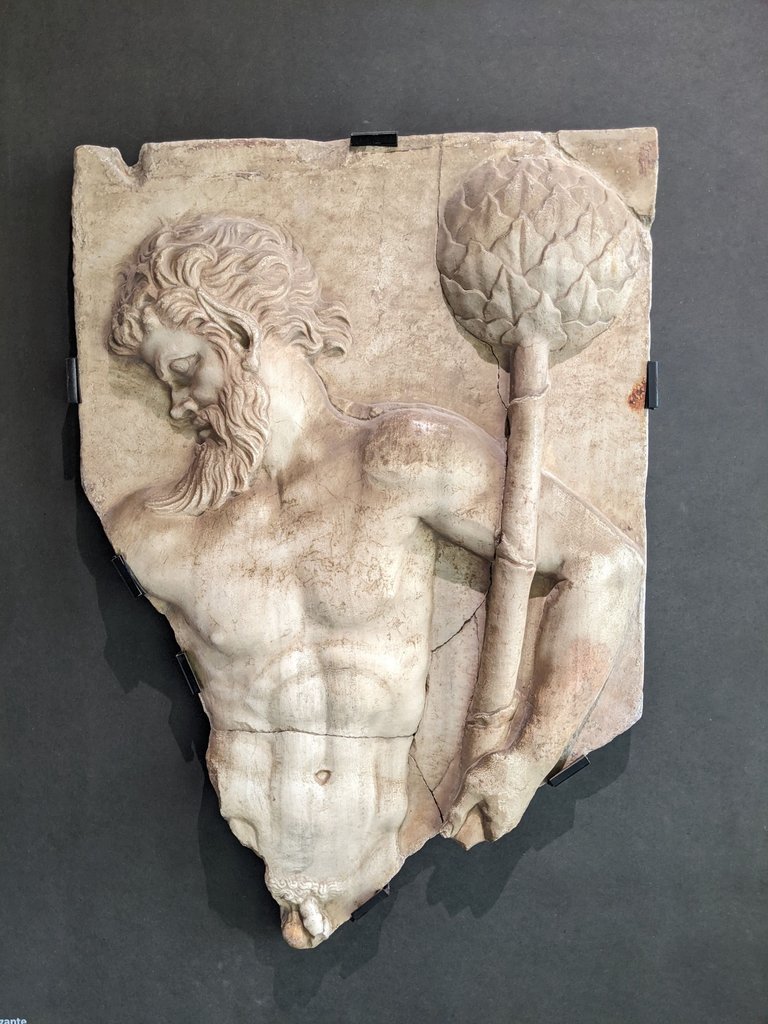
There is an indoor museum with some sculptures and art pieces found from around the city.
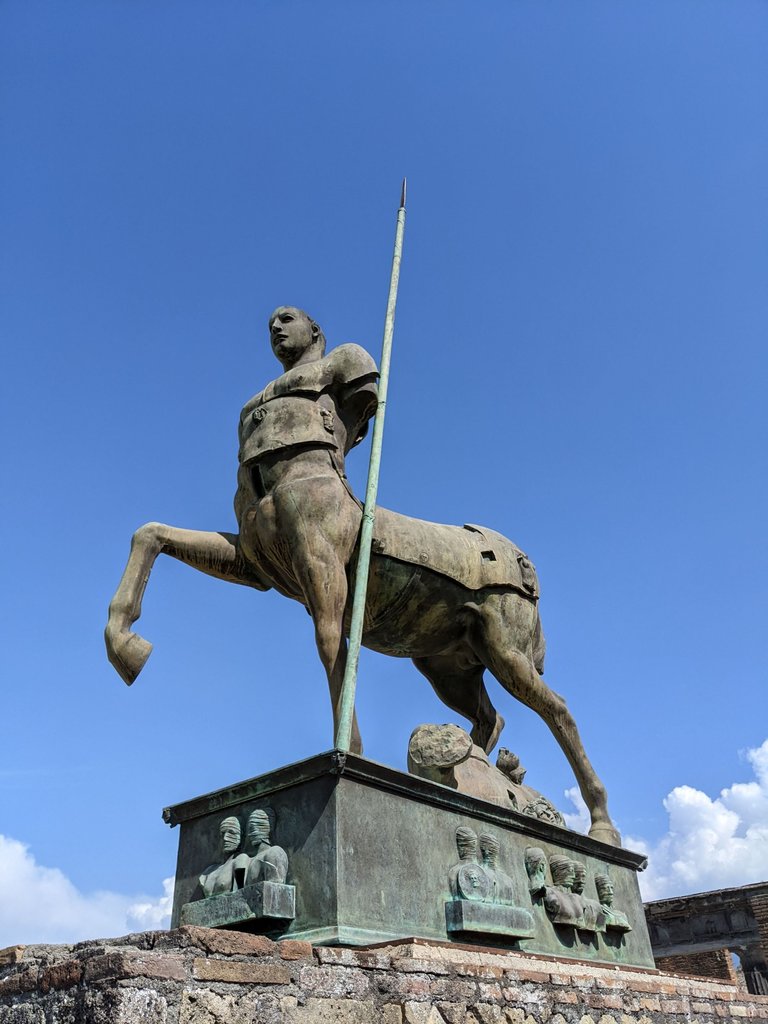
A large statue in the forum on our way out of the city.
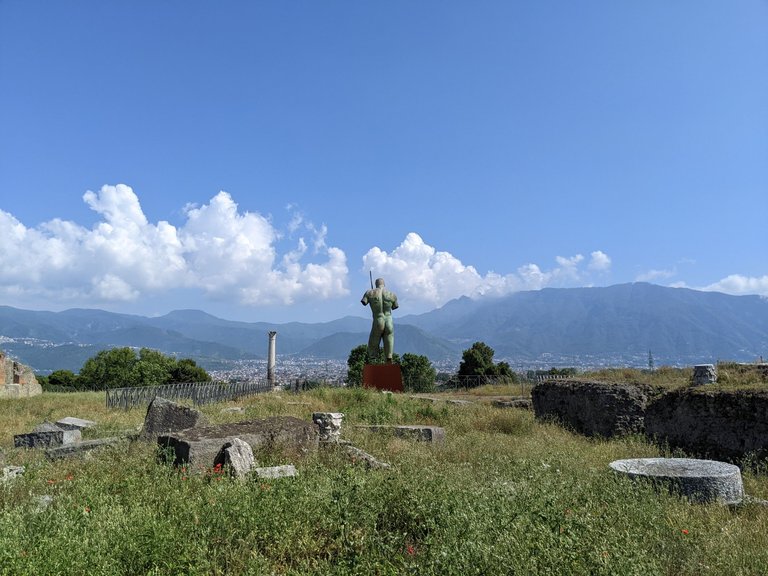
The last view as we exited the city.
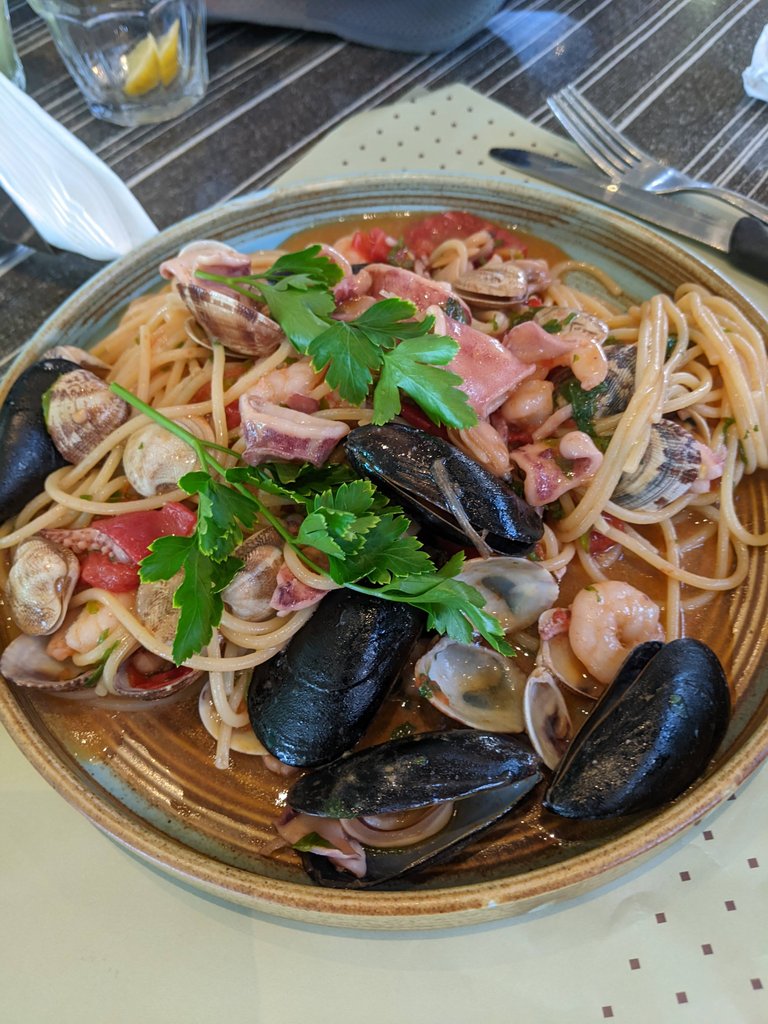
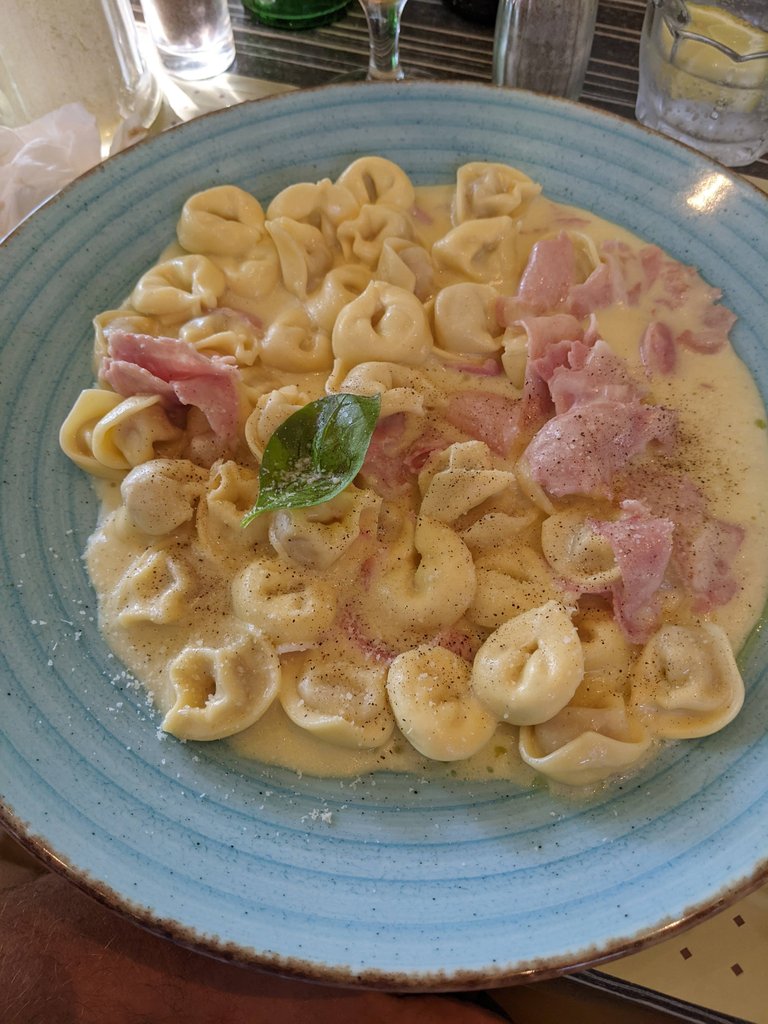
By that point our feet were tired and our bellies were empty it was time to eat. We did not go far and ended up at one of the tourist trap restaurants right across the street. Dzigbordi said that her seafood pasta was some of the best she had in Italy, the rest of us were not as impressed by our meals but my tortolinis pictured above did hit the spot.
If anyone is ever around Napoli or the coast of Amalfi I would recommend Pompeii for a visit. It may be touristy but is still very interesting and worth it.
